'All about the money': How women travelling to Canada to give birth could strain the health-care system
Birth tourism leads to complaints of compromised care at b.c. hospital.


Social Sharing
Women travelling to Canada to give birth to babies who will automatically become Canadian citizens are prompting concerns about the strain they may be putting on the health-care system, The Fifth Estate has found.
Canada is one of fewer than three dozen countries that follow the practice of citizenship based on birthplace, regardless of parents' nationality or status.
At one British Columbia hospital with a high concentration of such deliveries, complaints have arisen that the influx of these non-resident patients — also known as birth tourists — has led to compromised care for local mothers-to-be and struggles for nursing staff.
Some of these patients fail to pay hospital and doctors bills, leaving taxpayers and individual care providers on the hook.
"Most of them, they get the Canadian passport, and then they leave the country," said Dr. Mudaffer Al-Mudaffer, a B.C. pediatrician and neonatologist who sees babies of non-residents when they need critical care. "It affects the integrity of the fairness of the health system."
No statistics are available regarding how many people are travelling to Canada specifically to ensure their child is born here and will have a Canadian passport.
But figures from the Canadian Institute for Health Information and several Quebec hospitals indicate there were about 5,000 non-resident births across the country in 2018, an increase of nearly 15 per cent over the previous year.

In the fall of 2019, Cathy Shi arrived in Richmond, B.C., from Shandong, on China's east coast, to give birth to her third child. She said through a translator that she wanted her unborn child to have more opportunities.
"My concern is about their education, such as going to university. If the kid wants to live in Canada, it would be convenient for them if they're born here."
Handful of hospitals
At this point, the practice of birth tourism appears to be concentrated in a handful of hospitals in Quebec, Ontario and British Columbia.
At the Richmond Hospital, south of Vancouver, non-residents make up nearly a quarter of all births, according to records obtained from Vancouver Coastal Health, the health authority which runs the hospital. In many ways, that hospital can be seen as a test case for how this issue could play out elsewhere as numbers continue to climb.
The health authority declined a request for an interview with The Fifth Estate and issued a warning directing its staff not to speak to the media.
Despite that, four current and two retired nurses shared their concerns, requesting that their identities be protected.
- Watch "Passport babies" on The Fifth Estate on CBC-TV Sunday at 9 p.m.
Since 2013/14, the number of non-resident births has tripled at the hospital. The patients — many from China — pay privately for their care, often in cash, may not speak English and are unfamiliar with the Canadian health-care system. The nurses who spoke to The Fifth Estate say the influx has led to increased workloads and has compromised care.

"There are times when ... the people living here don't get the service that they need," one nurse said.
When the unit was very busy, one nurse said services like prenatal tests to check the baby's health, labour inductions and other tests to check fetal and maternal risk factors would be delayed or cancelled.
"We would often have to decide whose need was greatest and abandon the rest for the next day where we would face the same situation again," she said.
"Our normal scheduled or add-on C-sections lie here all day and then they take the IV out, we send them home and say come back tomorrow. A private pay never goes home — she gets her C-section that day," said another nurse.
"She will be fit in somewhere because nobody wants to lose that $5,000. But our normal people are lying there all day, no food or drink, waiting and nobody's interested in moving them."
Some hospitals, like Sunnybrook Health Sciences Centre in Toronto, have taken steps to limit the number of non-resident births in order to prioritize residents of their own communities. That hospital says it won't treat non-residents patients without Ontario Health Insurance Plan coverage.
- Ottawa probes birth tourism as new data shows higher non-resident birth rates
'It's fraudulent': Former immigration official says action needed on 'passport babies'
When asked in an email why the Richmond Hospital doesn't have a similar policy, Carrie Stefanson, a public affairs representative with Vancouver Coastal Health, said: "VCH cannot speak for other hospitals or health authorities. VCH will never deny urgent and emergent care based on ability to pay or where a patient is from."
The hospital requests deposits for privately paid births: $10,000 for a vaginal birth and $16,000 for a caesarean. More than $18 million has been invoiced for non-resident births since 2017, according to data released through freedom of information by Vancouver Coastal Health.
Nursing staff say they have not seen this money go into easing their workloads.
"The amount of money that's coming into Richmond from the private pay, it doesn't make our staffing better," said one nurse.
Their union says that is a problem.

"I certainly think adding additional patients into a health-care system that isn't staffed appropriately, isn't funded appropriately, is causing strain," said Christine Sorensen, president of the BC Nurses' Union.
She said the union has regularly heard complaints from nurses at Richmond Hospital but they have not filed a formal complaint with the hospital.
The health authority declined to answer a question about how it has responded to complaints from nursing staff.
Financial incentives within the medical system
Two doctors at the Richmond Hospital have delivered 1,300 of the 2,206 babies born to non-residents there since 2014, according to documents released through freedom of information.
While the health authority will not disclose their names, insiders and birth tourism company representatives say Dr. Xin-Yong Wang and Dr. Brenda Tan, two Mandarin-speaking family doctors, see the majority of these patients for prenatal care and delivery.
Both appear on multiple websites of companies advertising services such as assistance with immigration, travel and housing to women looking to come to Canada to give birth.
Wang said the companies do not have permission to use his name.
Tan did not respond to interview requests and a list of questions sent to her.

Wang and Tan billed the province $272,198.50 and $428,456.17 respectively in the 2018/2019 fiscal year, according to data publicly available through the province. Those billings do not include earnings from non-resident patients because they pay privately.
There are no limits on what physicians can charge outside the public system in British Columbia, but information from birth tourism company websites suggests that these doctors earn at least $100 per prenatal visit and more than $2,500 for a delivery, several times more than could be billed through the public system for the same services.
In an interview, Wang declined to respond to questions about how much he was earning from birth tourism but said he was not motivated financially to take on these patients.
"It's like a dessert — occasional patients like this is fine, and it's pretty financially rewarding … they are a small percentage of our overall income."
Nurses who spoke to The Fifth Estate said the financial incentives within the health-care system are a problem.
"It is all about the money. If there was no financial income for the hospital or physicians, the private pay would have been out of the door a long time ago," said one nurse.
Unpaid bills
While these births are bringing in money, bills owed to both health authorities and individual doctors are not always paid.
According to documents released by Vancouver Coastal Health, more than $2 million is outstanding as a result of non-resident births since 2017 at the Richmond Hospital alone. This does not include any debt that has been written off.
Births at the Richmond Hospital represent 11 per cent of overall non-resident births outside Quebec, according to 2018 data from the Canadian Institute for Health Information.
No national financial data exists on how much revenue is outstanding as a result of non-resident hospital bills across the country.
But some say the health-care system and Canadian taxpayers are losing out.
Al-Mudaffer said having an uninsured baby in neonatal intensive care can cost $10,000 a day just for the hospital bed, not including doctors' fees.
Watch Dr. Al-Mudaffer express concerns about birth tourism:
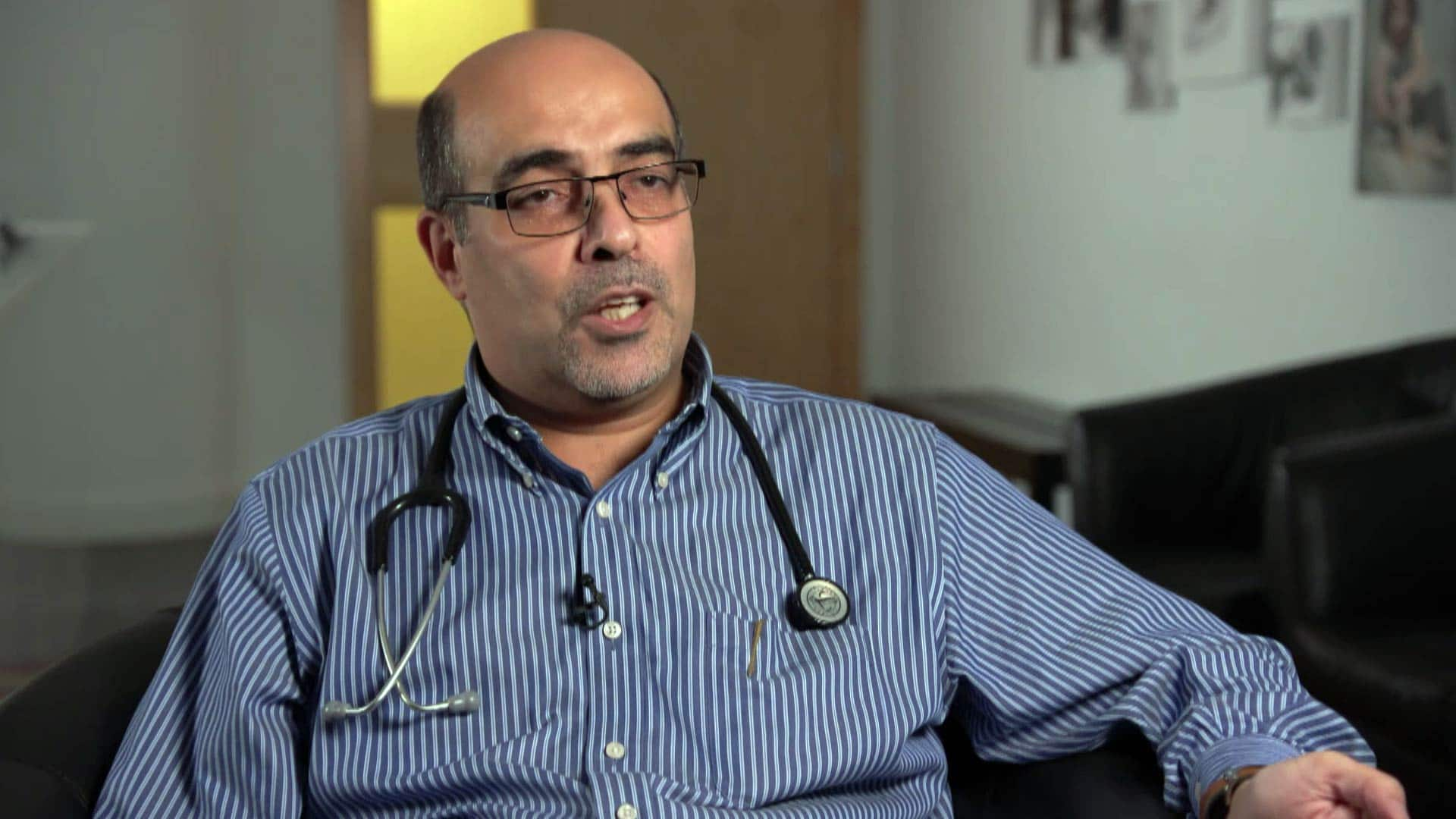
Dr. Mudaffer Al-Mudaffer
He said he's seen large bills for families with babies requiring multiple nights and even weeks in the NICU.
"You can easily acquire a bill of $100,000 to pay the health authority, and that's why they can't pay it, you know? And they leave the country without paying," said Al-Mudaffer.
He said he has seen hundreds of thousands of dollars in bills go unpaid at the Royal Columbian Hospital where he works, but Fraser Health, which runs that hospital, said it could not confirm this amount.
The Fifth Estate requested provincial numbers on unpaid bills from the British Columbia government but was told these numbers were not tracked provincially.
"Obviously if any bill is unpaid, I'm concerned about that because that's money that we could and should be spending on something else or saving the health-care system so of course we're concerned about it," said B.C. Health Minister Adrian Dix.
Even with little formal research to examine the practical implications of a growing number of non-resident births on the Canadian health-care system, Dix said "we are handling that situation.
"It's two per cent … of total births in British Columbia, so it's an issue but there are other issues."

But it's not only hospital fees going unpaid. Al-Mudaffer said when he sees birth tourists, he only gets paid three out of 10 times.
He is not alone. Dr. Kathleen Ross, president of Doctors of B.C., has personally been affected by unpaid bills and has called for a national conversation on the issue.
"Our federal government needs to find a way to disincentive people coming to the country to have access to citizenship and to our health-care support," she said.
Federal research planned
Marco Mendicino, the newly appointed minister of immigration, refugees and citizenship, declined an interview with The Fifth Estate .
But the department wrote that while "statistics indicate that birth tourism is not widespread, the Government of Canada recognizes the need to better understand this practice."
It said it has started work with the Canadian Institute for Health Information and Statistics Canada to integrate health and immigration data that would allow for a better understanding of the practice of birth tourism by looking at visitor visas and births.
Immigration, Refugees and Citizenship Canada anticipates results from this research will be available in the spring.
Cathy Shi said she hasn't thought much about criticism of birth tourism and isn't receiving any government benefits here.
"We may come here often for travelling around, living or even investing. People are not just looking for status by having a baby here. They will have established a connection to Canada and later on some may apply to immigrate."
For more information, on this story please contact Annie Burns-Pieper [email protected]
ABOUT THE AUTHOR

Annie Burns-Pieper is a freelance investigative reporter and producer. She has a particular interest in themes of gender equality, public safety and health.
- @Aburnspieper
Related Stories
- New survey helps Winnipeg health-care facilities fix issues quickly, sometimes before patient leaves
- N.S. asked health-care workers for ideas to fix the system. Here are some the public didn't get to see
Giving Birth in Canada – Benefits, Cost, Citizenship, Tourism Visa…
Are you considering the possibility of giving birth in canada, if you are an expectant mum considering baby tourism in canada, this is the guide for you read on.
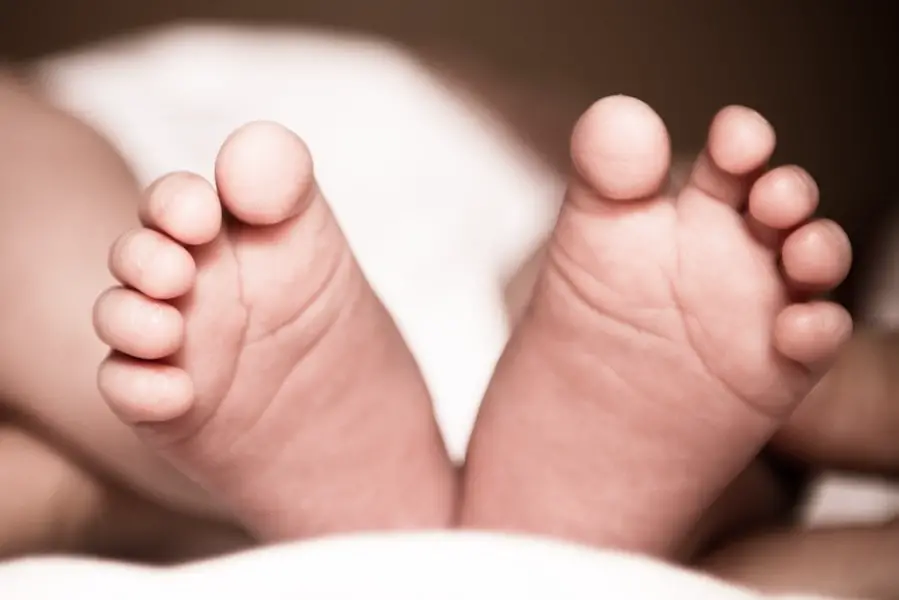
The Canadian Citizenship Act – paragraph 3(1)(a) – states that all individuals born in Canada are Canadian citizens, regardless of their parent’s status in Canada. The only exclusion is foreign diplomats who give birth to a child in Canada, cannot be Canadian citizens.
Therefore, if you are a temporary resident in Canada (e.g. a visitor, worker, tourist) and you give birth to a child in Canada, your child automatically becomes a Canadian citizen.
Did you know? The United States of America (USA) and Canada are currently the only G7 nations that have birthright citizenship.
Benefits of Giving Birth in Canada
What is the meaning of birth tourism and is it legal in canada , non-residents (visitors) wishing to enter canada for the purpose of giving birth – birth tourism, the cost and procedure of giving birth in canada, what documents do you need to have your baby in canada, best hospital to give birth in canada, how do you register your child in canada , how to apply for the child’s canadian passport, faq’s on birth tourism canada visa – temporary resident visa (trv), final words: childbirth in canada – birth tourism.
If an individual is born in Canada, the Canadian-born child has all the rights and privileges as every other Canadian citizen, including:
- The right to live/reside in Canada or travel to Canada at any time without a visa.
- The child is entitled to receive and enjoy benefits such as free health care benefits , free education , and free social benefits.
The act of travelling to another country to give birth and as a result getting citizenship for the child, even if the parents are neither residents nor citizens is known as baby or birth tourism.
Only a few developed countries allow this and Canada is one of them. It is also completely legal in Canada.
Like visitors or tourist visa holders, the expectant mother has to prove that she is financially capable and will return to her home country after delivery.
The expectant mother can provide a letter from the doctor who will deliver the baby in Canada and proof of funds for the doctor’s services to make the visa process easier.
If you will be delivering your baby while you’re in Canada as a visitor, tourist, or non-resident, you will have to pay out-of-pocket for your medical care. The Canadian health care system will not cover the cost. If you don’t want to handle this cost alone, then you should obtain international medical insurance.
The parents of the newborn can neither get a residence permit nor Canadian citizenship by virtue of their child being born as a Canadian citizen . However, when the child reaches the age of 18, he or she can sponsor his or her parents to come live permanently in Canada. You don’t have to wait till then though. Find the right Canadian immigration program for you here.
View this post on Instagram A post shared by CanadaWiz.ca (@canadawiz.ca)
A temporary resident who gives birth in Canada is not considered to have violated any terms or conditions.
According to the Immigration and Refugee Protection Act (IRPA), a TRV cannot be refused just because an applicant intends to have childbirth in Canada.
Assessment of the TRV application of a pregnant applicant should centre on the essential requirements of TRV just like any other applicant.
The fact that an applicant is pregnant should only be considered as a component in the TRV assessment but only in the manner that it affects the assessment of the main requirements for TRV issuance. They are:
- Does the applicant have sufficient funds for the duration of the trip to Canada ?
- Will the visa applicant depart Canada at the end of their authorized period of stay in Canada?
- Is the applicant admissible to Canada ?
The intent to give birth in Canada (whether indicated or evident) and the pregnancy consideration must relate back to one of the three above primary requirements for issuance of the TRV.
COVID-19 Update: Due to COVID-19, there are travel restrictions that limit those who can come into Canada. Answer some questions to find out if you may be allowed to enter Canada.
Shop Baby Products on Amazon
Feeding Supplies, Diapers, Care Products and More!
Who Covers the Health Care Costs for Childbirth in Canada?
As a visitor/tourist in Canada, deciding to give birth to a child in Canada has some associated costs ranging from $5,000 CAD to $20,000 CAD.
The cost is based on various factors, such as:
- The health care costs in the province you decide to have your child (some provinces have higher health costs than others).
- The medical facility that is handling the care (hospital vs. mid-wives)
- The type of delivery (normal delivery vs caesarean section).
The parent of the child born in Canada is NOT eligible to have the costs of the child’s birth covered by Canadian healthcare.
The mother of the child will be required to pay out-of-pocket expenses for all the associated medical costs and bills related to the birth of the child. This is mandatory since the parent is not a Canadian resident.
The Cheapest Way to Transfer Money to Canada
Paying for your childbirth costs in Canada just got simpler. Wise (formerly TransferWise) is great for sending money internationally with low fees – much cheaper than using your local bank.
Take the stress out of managing your finances. Use a Wise debit card to pay and withdraw money from ATMs when you travel internationally.
If you are a temporarily residing in Canada resident (e.g. student, worker, etc.), you will usually have medical coverage through your educational institution or the provincial government, depending on how long you’ve lived in a specific province.
For example, if you are an international student studying in British Columbia, your educational institution will usually arrange for health coverage through a private insurer for the first 3 months before your provincial health care coverage takes effect.
What is the Procedure for Giving Birth in Canada for Non-Resident?
The procedure for giving birth in Canada for foreign nationals is:
- Decide that you want to give birth in Canada.
- Apply for a Canadian Temporary Resident Visa (TRV) * .
- If your TRV application is approved, arrive in Canada.
- Give birth to your child in Canada.
- Apply for your child’s birth certificate and the child’s Canadian passport.
- Return back to your home country.
* Citizens of certain countries (such as the United States of America) do not require a TRV to give birth in Canada. However, you may need an Electronic Travel Authorization (eTA ) to enter Canada.
Applying for an eTA is a straightforward online procedure. The majority of applicants get their eTA clearance (through email) within minutes. However, if you are required to provide supporting documentation, some requests may take several days to complete. It is essential to get an eTA before booking a flight to Canada .
Need Help to Submit a TRV Visa Application for Birth Tourism? Contact Us!
⚠️ COVID-19 Update: Temporary Pause on our Birth Tourism Services
Due to the impacts of coronavirus disease (COVID-19), the Government of Canada (IRCC) is prioritizing applications from:
- Canadians trying to return to Canada,
- Vulnerable people, and
- People who perform or support essential services.
Thus, it is not likely that you will receive a visa decision early enough for you to give birth in Canada. Check IRCC’s current processing times here .
Similarly, due to COVID-19, there are travel restrictions that limit those who can come into Canada.
Therefore, even if you have a valid Temporary Resident Visa (TRV) – tourist visa, you may not be allowed to come into Canada for birth tourism. You can find more information on the current travel restrictions here .
Additionally, the health care facilities are currently overwhelmed. Hence, medical practitioners and health authorities in Canada may be reluctant to provide a letter, if IRCC requests one.
Based on the preceding, our birth tourism services may not meet your intended purpose. Thus, we have put a temporary pause on our TRV visa application services for birth tourism in Canada. We will keep monitoring the situation and update this section accordingly.
You should bring certain documents along with you when going to the hospital to deliver your baby. These are copies of:
- Your medical records if you have them with you.
- Your birth plan.
- Insurance cards and/or healthcare coverage.
- Your Social Insurance Number (SIN), if applicable.
- Your passports and visas.
If you’re a non-resident (visitor) thinking of having your baby in Canada, you may be wondering which hospital is the best place to give birth.
Every province and territory has different hospitals that offer different levels of care, so it can be tricky to figure out which one is right for you.
The following are the top ten (10) hospitals in Canada with the highest number of non-resident births:
- Ste-Mary Hospital, Quebec
- St. Paul’s & Mount Saint Joseph, British Columbia
- Richmond Hospital, British Columbia
- Mackenzie-Richmond Hill, Ontario
- McGill, Quebec
- Trillium-Mississauga, Ontario
- St. Joseph’s Health, Ontario
- Mount Sinai Hospital, Ontario
- North York General, Ontario
- Trillium-Credit Valley, Ontario
Keep in mind, however, that the above list is not necessarily the “best” hospital list – every province and territory has several excellent hospitals to choose from. So if you did not see your hospital of choice above, don’t worry – you’re still in good hands!
Each Canadian territory or province has its process for registering childbirth . If you have your child in Ontario, for example, you’ll have to register the baby within the first 30 days. So you should contact the local authorities for information specific to the province you are in.
When you register your child online, you can also sign up for Canada’s child benefits, register for the child’s birth certificate and his or her social insurance number.
After completing the birth registration and getting a birth certificate to prove Canadian citizenship, you can then proceed to apply for the child’s Canadian passport. To do this, you will have to:
- Complete the Government of Canada form .
- Provide your baby’s birth certificate.
- Provide two photographs for the passport.
- Get a representative (the representative could be a doctor that observed your child in the first days after birth).
- Pay the stipulated fees.
- Send the documents by courier or mail service with tracking, to: Government of Canada Passport Program Gatineau, QC K1A 0G3 Canada
Was Your Canada Tourist Visa (TRV) Application Rejected?
If you are considering reapplying , it is a good idea for you to first get the complete details on your previous application from ircc..
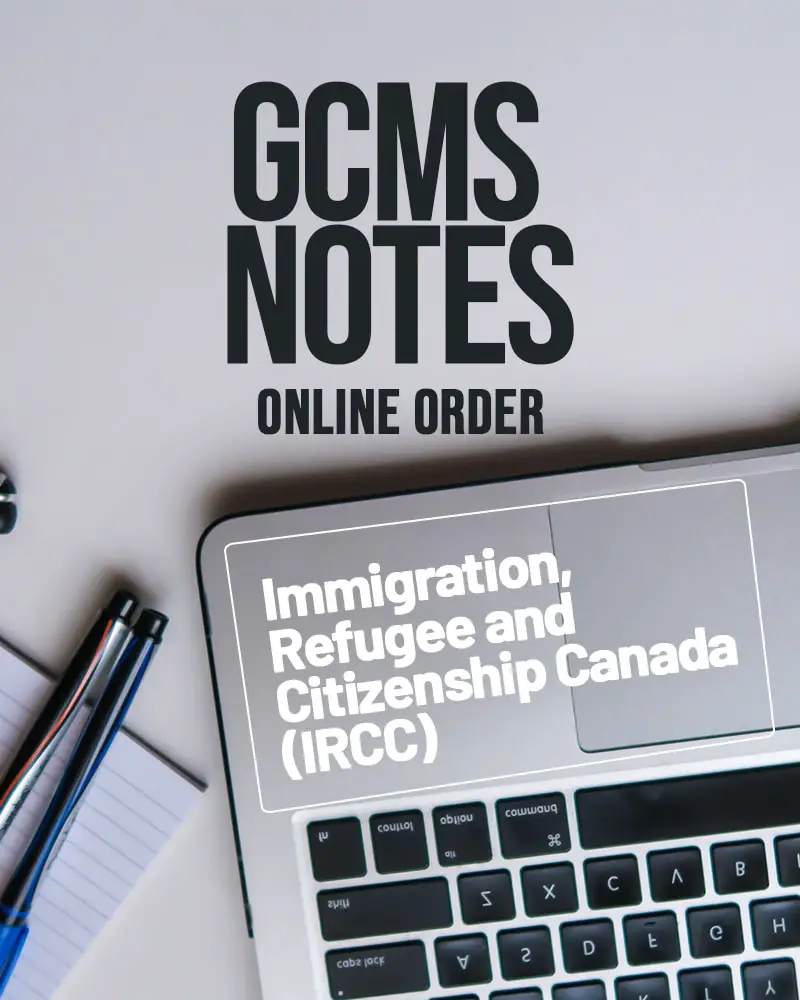
Should I disclose that I am pregnant or that I intend to give birth in Canada when applying for a Canadian TRV?
Yes, you should indicate in your visa application that you are pregnant or that you intend to give birth in Canada. This is important as it may be considered as a material fact in the evaluation of your TRV application.
If the Canadian visa officer is not advised of the pregnancy, it may go unexamined; the fact you are pregnant or that you intend to give birth in Canada may be significant to your TRV application assessment. For instance:
- Have you made pertinent arrangements for your medical treatment in Canada?
- Do you have the financial capacity to cover the full costs of childbirth in Canada, or
- What is the likelihood that you’ll depart from Canada after the birth of your child?
Hence, in some circumstances, the deliberate cover-up of intent to give birth in Canada may result in a conclusion of inadmissibility for misrepresentation (under A40), thereby resulting in a visa refusal prior to visa issuance or refusal of entry into Canada on arrival at the port of entry.
Should I answer “Yes” or “No” in the TRV application form where I’m asked if I or “any accompanying family members have any physical or mental disorders that will require social or health services during their stay in Canada”?
The TRV application form asks whether the visa applicant or if any family member(s) that will be going along to Canada with the applicant, have any physical or mental conditions that will need Canada’s health or social services during the stay in Canada.
As pregnancy is not typically deemed as a “medical condition”, the visa applicant may answer “No” to this question. This is not usually considered misrepresentation in the instance of pregnant applicants, based on the wording used.
READ ALSO >> Chances of Getting Canada Tourist Visa after Refusal
Could being pregnant be considered as medical inadmissibility to canada.
No, pregnancy by itself cannot deem a TRV visa applicant as inadmissible to Canada .
Although a “high-risk” pregnancy could result in undue demand on the Canadian health care system, this would usually be hypothetical and would not be applicable to the unborn child, as the child born in Canada will become a citizen at birth.
Any concerns that the child after birth in Canada may be a burden on Canadian health and social services, cannot be used in evaluating the medical admissibility of the TRV applicant.
The focus of Canadian visa officers should be on available financial support, when utilizing the guidelines on temporary resident applicants seeking medical treatment in Canada, as part of their assessment of admissibility.
Will a medical examination be required from pregnant TRV applicants?
As per IRCC, a medical examination should only be requested in extraordinary cases. For instance, where the information from the medical examination would be material to the assessment of the TRV visa application.
Can I travel to Canada if I am pregnant?
Yes, you can travel to Canada if you are pregnant. Travelling to Canada is perfectly safe as long as there are no known issues or concerns with the pregnancy.
It is strongly advised that pregnant women who want to travel visit a health care professional at least six weeks before their anticipated departure date.
How much does it cost to deliver a baby in Canada?
The cost to deliver a baby in Canada for Canadian permanent residents and citizens is typically free in most Canadian provinces and territories.
On the other hand, the cost to deliver a baby in Canada for non-residents (visitors) depends on whether they have health insurance coverage or not. The cost ranges from $3,000 CAD to $20,000 CAD.
What countries allow birth tourism?
The countries that allow birth tourism are Canada and the United States. Furthermore, Chile, Brazil, and Mexico do not only allow birthright citizenship, they subsequently expedite permanent residency and time to naturalize as citizens for the parents of the child.
In the majority of European countries, the child of an immigrant is not eligible for citizenship.
What happens to a child born in Canada to foreign parents?
A child born in Canada to foreign parents is entitled to Canadian citizenship by birth. On the other hand, if the child’s parent does not already have Canadian permanent residency or Canadian citizenship, the parent will have to return to their home country with their child, despite the fact that the child was born in Canada.
If the parent wishes to become a Canadian citizen, there are legal ways to attain residency with a Canadian-born child; typically once the child attains the age of majority (18 years old).
There has been a consistent increase in “birth tourism” to Canada, whereby expectant mothers from other countries travel to Canada in order to give birth so that their children can acquire Canadian citizenship.
Some people are opposed to this trend, arguing that it amounts to cheating the system and gives an unfair advantage to children born in Canada over those born elsewhere.
Others maintain that as long as everyone is playing by the rules, there is no harm in birth tourism and it should be allowed.
What do you think? Got questions? Feedback? Leave a comment.
Read also >> cost of having a baby in canada – with or without insurance.

Charee Oisamoje is the founder of CanadaWiz. She leads the editorial team, which is comprised of subject matter experts that aim to create well-researched, highly detailed content related to studying, working, immigrating, and settling/living in Canada as a newcomer.
Charee's personal experiences as a Canadian immigrant and her professional competencies make her uniquely qualified on the subject matter.
Learn More >> About Page
🏆 Best Offers This Month
📌 get $3,000 free transfer and earn $75 referral bonus.
✔️ Get up to $3,000 CAD * Fee-Free transfer (or the equivalent of £2,000 in other currencies). ✔️ Earn $75 CAD** for every 3 friends you refer; they'll get a fee-free transfer of up to $800 CAD. ✔️ Multi-Currency Debit Card: Spend abroad without hidden fees. ✔️ Best and real exchange rates and lower fees than old-school banks and other money transfer services. *Your secret code will be automatically applied. **USD accounts earn $115 USD for every 3 friends you refer; they'll get a fee-free transfer of up to $600 USD).
📌 Low-Cost International Money Transfer with $30 Cash Bonus
✔️ Get a $30 welcome bonus for transferring $100* or more. ✔️ Get a 20 GBP welcome bonus for transferring 75 GBP* or more. ✔️ Fast: 95% of transfers are received by the recipient in minutes. ✔️ Better exchange rates and lower fees than most traditional banks and money transfer services. *This can be achieved over multiple transfers.
More Trending Posts

The Cost of Having a Baby in Canada: With and Without Insurance, 2024
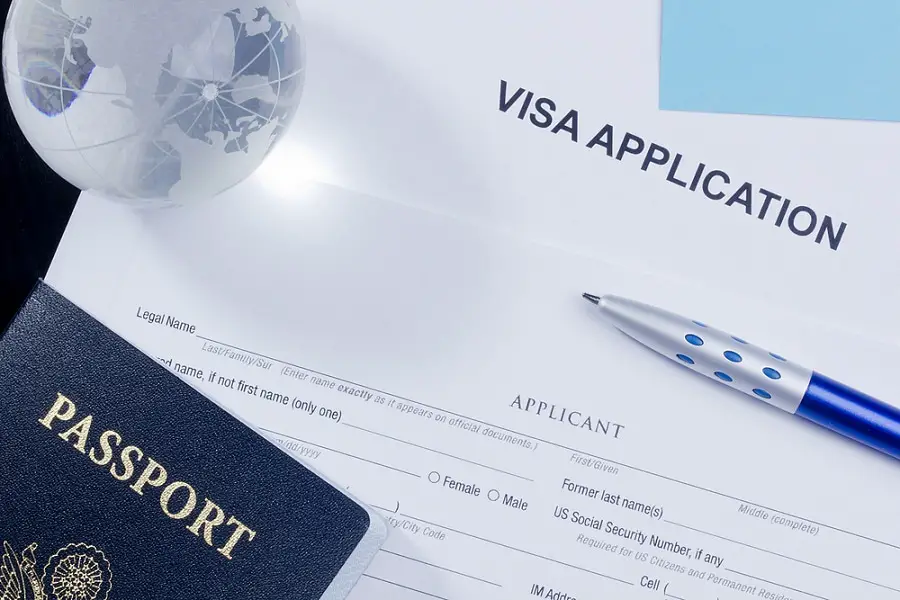
The Perfect SOP Letter for Canada Student Visa & Top Canadian Schools
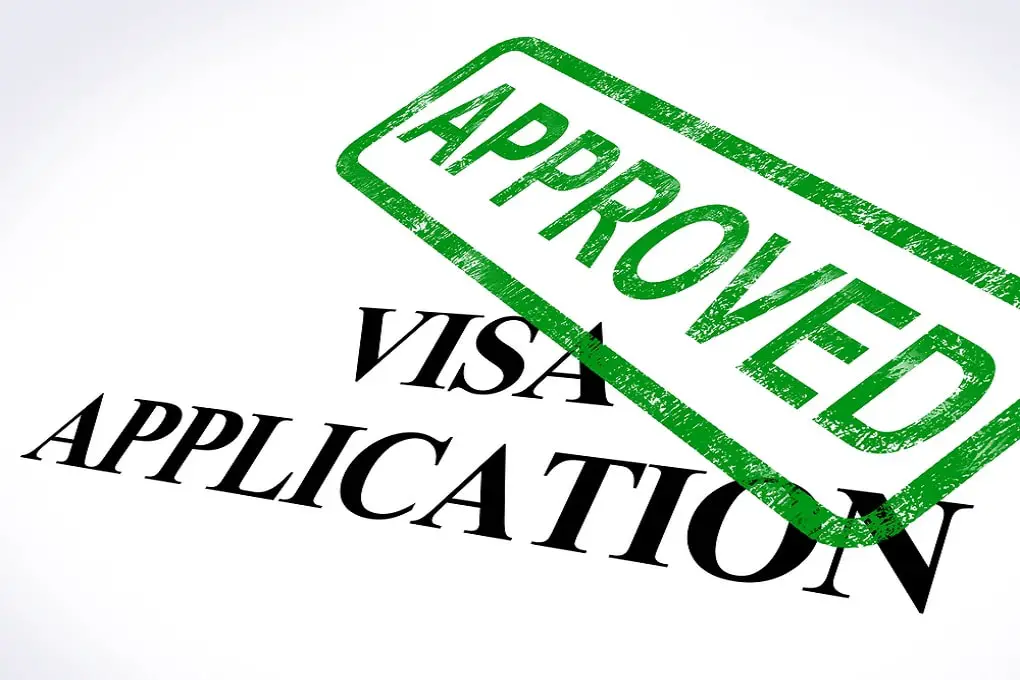
Temporary Resident Visa (TRV) Canada: How to Apply, 2024
75 thoughts on “giving birth in canada – benefits, cost, citizenship, tourism visa…”.
I am a pregnant Nigerian female with the intention of going to Canada for delivery. I have a brother in Alberta who is currently a permanent resident with his family. What I would like to know is, does having my baby become a Canadian citizen by virtue of birth afford me a better chance of obtaining a permanent residency/citizenship status in the near future? I mean can my husband and I apply for permanent residency by virtue of our child being a Canadian citizen?
Ganiyat Abdulsalam Haway, Neither you nor your husband can apply for permanent residency/citizenship by virtue of your child being a Canadian citizen due to being born in Canada. However, in the future (if Canadian immigration law is still the same), when your child reaches the age of majority (usually 18 years of age), he/she can apply to sponsor you and your husband to immigrate to Canada as permanent residents. If you and your husband are looking to becoming Canadian permanent residents in the short-term, you will want to consider other immigration routes, for example, Express Entry .
Hello , I’m Kudirat and I want your help on how to go give birth in Canada or better still refer me to a trusted company
Hello, I need the process to travel to Canada for childbirth as soon as possible.
Just google it man !!! if you go to the IRCC website you will find all the information and process you need.
MY NAMES AR JOSEPH IDRIS. I WANT TO KNOW ABOUT THE REQUIREMENTS FOR APPLICATION FOR TRV TO CANADA TO GIVE BIRTH. I WANT MY WIFE TO GIVE BIRTH IN CANADA AND I WANT TO KNOW ABOUT MY CHANCES OF OBTAINING VISA AND THE REQUIREMENTS.
Idris Jiseph, The requirements for application for TRV to give birth in Canada is similar to a regular TRV. The only difference being that your wife has to indicate in her application that the purpose of her visit to Canada is to give birth and meet the additional requirements. Refer to the answer we provided above to the question “Should I disclose that I am pregnant or that I intend to give birth in Canada when applying for a Canadian TRV?” What country will you be applying from? If you will be applying from Nigeria, this post has detailed information on the Canada TRV process.
I’m permanent resident of Canada and living in Ontario , but my wife dose not have PR and she has TRV and also Expresses entry application in process , she is pregnant now and I’m wondering if I can use my Ohip coverages for some of her maternity costs or do I have to pay from my pocket
Al the best to you bro. i am in the same position and wondering the same.
Can you please help my wife with the process too, she will like to give birth in Canada my no is {your phone number has been deleted to protect your privacy}.
Adefemi, Check your email inbox (Also check your spam/junk folder too).
Can you also assist me in getting birth tourism.
Armin, To ensure that you get the most accurate information, we recommended that you contact OHIP to ask. Please come back and post a follow-up comment to let us know what you found out, so that others like Gaspar Raposo can gain from your knowledge. All the best!
Please help me out here I want my wife to deliver in Canada and I was introduced to an agent who took our money and for one year now story story from the agent and my wife have birth in my country Nigeria and this time I do not want to make the same mistakes again Please help us out here my email {your email has been deleted to protect your privacy}
Obuefuna Cyprian, Sorry to hear about your experience with an agent who defrauded you and your wife. To ensure that you do not make the same mistakes again, you want to first ensure that your wife meets the requirements to apply for a Temporary Resident Visa (TRV) from Nigeria . If she meets the requirement, she can follow the step-by-step process here and apply on her own. Or if you/she requires one-on-one assistance, feel free to contact us for help.
Hello please my hubby wants me to give birth in Canada,please help us with the easiest way out
Good morning, do I need to register with a hospital while in Nigeria or when I get there.
In my place of work, I will only be allow to leave for Canada when I m about to put to bed, what maximum age limit(pregnancy age now) will be allo to travel
I want my wife to give birth in Canada. Can you help me with the process.
Maloof Olawale, Sure, we can help you with the process. Keep in mind that you will be expected to provide your own supporting documents . Feel free to contact us .
Hello, I am a Canadian permanent resident, my girlfriend is pregnant in the United Estates. I would like to know if she can come to gift birth to my kid in Canada where I live and if my health care will cover that?
Jon, Congrats to you and your girlfriend on the pregnancy. As health care varies by province, kindly confirm the province you live in to ensure that we provide you with accurate information.
Need some guidance.
I am a Candian Citizen. Born and raised here in winnipeg, Mb. My Wife is currently here on a visiting visa from Vietnam. She is expected to go back to Vietnam in March 2021. However I do t believe restrictions will allow her. I am in the process of sponsoring her.
My wife is now pregnant. I want to have the child here in Canada. Can I extend the visa? What options do I have to keep her here. And also, if my wife gives birth here in winnipeg, will it be covered under my health care?
Please help.
Best Regards, Andrew
Hello Andrew, We are in the same situation as you and your wife, down to my wife being from Vietnam (only difference is we’re in Sask). Did you get any answers? Any advice you’d be able to share?
Are there any travel ban for people from Nigeria who want to give birth in canada this year? Because i want to commence the process of obtaining TRV.
Oare Fredrick Ojehomon, The COVID-19 restrictions by the Prime Minister / Government of Canada stop most discretionary (non-essential) travel to Canada. An individual wanting to travel from Nigeria to Canada to give birth will fall into this category. As of today, people from Nigeria (or any other country for that matter) wanting to give birth in Canada cannot travel to Canada, even if they have a valid visitor/tourist visa. As travel restrictions may change with little notice, I cannot say if/when the restriction will be lifted this year.
Hi! I am pregnant and have a working visa and I have a valid health care card. Is my medical fees, and hospital bills will be free? I’m worried if not. Please help me. The father of my becoming child is Permanent resident but we’re not married.
Hello, I applied for Temporary Residence Visa for birth 2 months ago. My hospital appointment is in a month time. I haven’t received any response which is making me nervous. I paid medicals fees in full and attached all necessary documents. Is there hope for me? My due date is in 4 months
hi there, my name is Alan, I and my wife are originally from Mexico and we are permanent residents of Canada, we are trying to have family, but for us, in order to do that, we will need to use a surrogate mother. My brother’s sister in law (also from Mexico) has offered to be our surrogate mother. We also have already our own embryos in Vancouver and are ready to be transferred. So we need our surrogate to come to Canada for the transfer as soon as flights from Mexico are open again (right now there are no flights because of COVID until April 30, and then we would like to have the baby delivered also here in Canada. so is this all possible? and what kind of visa should be applied for her for this matter? is it the TRV as well? and what are the chances we will get approved?
Hi, Im a Canadian living in USA (for 2 years now) and I want to give birth in Canada, how can I get free health care again in order to delivery in Canada for free? Thank you!
Hi, I am a permanent resident of Canada but my partner is not. She is in Canada with me on a TRV (visitor visa). We are planning to have a baby in Canada, Ontario, where we are staying. I have OHIP only for me, but can I get coverage of some of our maternity and delivery costs using my OHIP? Also, how can I get OHIP for my partner? Thanks.
Hi, If your wife is on a visitor visa, she, unfortunately, cannot be covered provincially or federally. I would call OHIP to double-check.
Greetings I WANT TO KNOW ABOUT THE REQUIREMENTS FOR APPLICATION FOR TRV TO CANADA TO GIVE BIRTH. I WANT MY WIFE TO GIVE BIRTH IN CANADA. WE PRESENTLY HAVE 🇦🇪 UAE RESIDENT VISA.
Good day, I am a Nigerian whose wife is currently pregnant and I would like her to Deliver the baby in Canada in 3 months from now. Kindly advise on the possibility of having this done and the financial implication.
How long does it take to process the birth certificate and passport of the child once born in canada 🇨🇦?
This depends on your province. I would give it 3 weeks to 1 month for birth certificate and for non-urgent passports, 3 weeks to 1 month as well. If travel is imminent, indicate it when applying for your child’s passport.
Hello I would love to have my baby in Canada , please what are the procedures?
like a month i think
As you said there is no certain of opening for birth tourism visa but still can i process to apply for tourist visa,( due date is in september)??
Hi, i’m lebanese and pregnant and want to give birth in Canada. Is it possible to get visa for that matter? Where should i mention the purpose of my trip? Will i be granted the visa?
I’m 18 years old on a student permit – if I give birth will the government support me ?
Hi, I would like to give birth in Canada, Montreal to be exact. Could you give be options of hospitals, OBGYN sound that area and costs associated with giving birth.
God Bless Great countries like Canada, I would love to have a direct chat with the admin if given an opportunity.
Warm Regards
Can you please help my wife with the process too, she will like to give birth in Canada
I am Canadian and my wife is not she is currently pregnant and needs a visa to enter Canada. I would like for my child to be born in Canada I have the means to pay for all hospital bills and any other expenses. What is the process time? her visa application has been summited but when it was summited we were not married and we were not pregnant.
Hi, I am engaged to a Canadian citizen, and we live in the UK (I’m from Southern Africa). I’m 4 months pregnant and we were hoping to travel to Canada together before the baby is born to be with family. Would I qualify for healthcare (and would I be able to deliver the baby for free) in BC if we were to do so (assuming that the visa application was processed in time, of course)? Because I will be married to a Canadian, we did not think this counted as ‘birth tourism’, but its not clear from the website exactly what visa we should apply for, and whether I would have to pay all medical fees out of pocket…
Thanks for your guidance!
Can I apply for a Canada visa now to give birth ?? And do I have to go for a interview?
Greetings Please, I’m from Ghana and 5 months pregnant. I want to know if is possible now to get a visa to give birth in Canada?
I’m an overseas Canadian that wants to return to Canada to give birth, but I have lost my OHIP. I can only stay in Canada for about 3-6 months based on the nature of my husband’s job. Can I get OHIP for my Canadian family members if we stay the 153 days, which will cover the cost of labor and delivery and any other health care required upon return if I show proof of PR. What if I have to leave before the 153 days? How do I pay taxes after?
hiiii. my name is pradeep saini me and my wife we have been permanent residency of alberta .my wife is pregant nd i just want to about the delivery cost or free of delivery ..our health is working on delivery or not ..please help me out this ???
Hi, My name is blessing from Nigeria, my husband and I will want to give birth to our child in canada. Please can you provide us with every information we will be needing on the process. The cost of the hospital bills, the best city and probably hospital to have our baby, and how long the process will take. Am aware of the covid restrictions but I need the info pending when restrictions will be lifted. This is our contact 07062318302 Thanks.
Hi I have been applying for a student visa for almost 2 months and my wife has applied for an open work permit visa. My wife recently found out she was pregnant. If our visa is issued and my spouse gives birth in Canada, will the delivery costs be free for us or do we have to pay out of pocket?
Congratulations to you and your wife on the pregnancy.
As an international student in Canada, you will typically have health insurance coverage arranged through your school or you may be eligible for Provincial health coverage after a period of time. Thus, if you add your wife as a dependent on your health insurance and she gives birth in Canada, the delivery costs should typically be covered either through your school’s group health insurance plan or the provincial health insurance plan.
I’ll recommend you check with the educational institution in Canada, where you’ll be studying for precise information.
Dear Sir or Madam, I am a non-resident from Poland wishing to deliver a baby in Canada. I would like to get some information on the costs of delivery at hospitals in Quebec, Montreal, Ottawa or Toronto. Could you provide me with any list of hospitals in said cities that accept non-residents? I am especially interested in C-section. Also, I would like to ask how much time it takes to have an Electronic Travel Authorization (eTA) granted (I am a EU citizen)?
I look forward to hearing from you.
Kind regards,
Hi, I have recently applied for study permit to Canada online. one month later I discovered that I am pregnant, is this will affect on the officer decision? However I still didn’t do the medical exam.
Is my Ecuadorian common-law girlfriend covered for medical support if she is carrying my child? I am a Canadian citizen and my now pregnant common-law girlfriend has been in Canada with me on a visitors visa since Jan 2020. We have received two Visitor Records to extend her legal status and have just requested a third out to 2023. We are also applying for her PR status, but it could come after the baby is born.
Cannon, Canada health/medical insurance coverage varies from province to province. Which province in Canada do you currently reside?
Hello, I’m a canadian citizen by birth while my wife is under open work permit status. We both live together in Canada. I’m sponsoring her under the family class, spouse in Canada path. If we have children, while she is waiting for her PR, will we have to pay out of pocket costs for child birth?
To clarify, we both live in Manitoba. We are both legally married to each other. The civil marriage took place in Manitoba.
Hello, If an international student in Alberta is pregnant and decided to come home to home country after giving birth (due to hardship as the husband is inadmissible to Canada). Can the student still come back to finish the study after the husband’s 5 year ban is done?
KP, You can take time off your studies in Canada with the intention of returning back to finish the study afterwards, but keep in mind that there is no guarantee that IRCC will approve your study permit at that time. I recommend you discuss your unique circumstances with an educational counsellor at your institution in Alberta. All the best!
Hi .. I’m 3 months pregnant.. I’d like to know the possibility of having my baby in Canada with my spouse being the sponsor … we both live in Nigeria .. thank you
Dear Canadawiz team, We’ve (non-Canadian) had a child born in Canada. My wife is pregnant again and we are hoping to deliver the second in Canada as well. I understand that immigration officer cannot stop anyone from coming into the country for birth as long as you prove you have the funds but, can there be any sort of repercussion at immigration when they find out my son is Canadian and parents are not. And decline us from any future deliveries in Canada.
Good day, can you please recommend some insurance company and type of insurance for non- residents to give birth in Canada, thank you.
As a non-resident of Canada, our recommendation is that you get maternity insurance coverage from an insurance company in your country of residence before you get pregnant.
This is because most insurance policies will not cover maternity costs for people who are already or soon will be pregnant. There are usually 6 to 12 months of paid maternity coverage before insurers start to cover pregnancy, birth, and newborn care. This is called a “moratorium.”
I am writing to you for the purpose of inquiring about how to make an appointment for my wife to give birth in Quebec, as the date of her birth is in July 2022, as she will be in Canada at the beginning of June. Please provide me with the required information and if it is necessary to send some medical information about her.
Dear canadwiz team, I am appreciating you to give me any information about the cost of giving birth in vancouver for non-resident…thank you very much in advance
Dear Canadawizteam, Please I would like to know how one can get the International Insurance cover for childbirth. Thank you.
This is very fantastic, I’m grateful for such a detailed article, thank you so much.
Work permit holder’s wife can give birth in Canada? All the medical fees-free? need to pay by pocket? Please clarify.
Hello , I’m Abimbola and I want your help on how to go give birth in Canada or better still refer me to a trusted company
Dear Canadian team, My wife is pregnant and wishing to deliver baby in Canada, kindly advise if necessary to do arrangement with hospital in Canada to give us quotation (cost of birth) before submitting application for TRV. Also advise how much time need processing to get TRV from Nigeria as all requirements complete to submit Thank you for your help Regards,
I am from India and I have received an open work permit visa . I will be travelling to Canada with my husband who is the primary applicant and holds work permit . As we are expecting ,I want to know what will be the process to give birth over there in Canada . For Eg, do we need to have an insurance before we want to give birth or how many days does it take to get an insurance once we reach there. How much time does it take to book an appointment with an obstetrician ? P.S. I will be moving to Halifax, NS.
Hi! I’m a US citizen and is currently 4mos pregnant. My boyfriend is a Canadian citizen. We want to give birth in BC. I dont have insurance or international insurance. He doesn’t have one too. Is there any way for him to apply for kne and extend it to me?
Is there any immigration childbirth packages that you can offer?
Thank you!!!
The world of marijuana strains is diverse and constantly evolving. Whether you are seeking relaxation, energy, pain relief, or other specific effects, there is likely a strain that suits your needs. It is important to note that individual experiences with marijuana can vary, and finding the right strain for you may require some experimentation. When trying different strains, start with small doses and monitor how your body and mind respond
Leave a Comment Cancel Reply
Your email address will not be published. Required fields are marked *
GET THE INSIDE SCOOP
Join other subscribers and receive exclusive tools, tips, and resources directly from CanadaWiz!
Subscribe Now
Get the latest Canada Immigration tips & hacks in your inbox.


Childbirth Packages in Canada
Welada is proudly the leading facilitator of child birth in canada..
Welada offers a package that ensure the health and safety of mother and child. Welada does not compromise on healthcare services. Rest assured that you'll receive the best medical healthcare possible in Canada.
Important information about child delivery packages and costs in Canada:
The above packages cover the standard birth costs only. Costs that arise from unforeseen complications, extra tests requested by the doctors, or extra medical care required, will be charged extra.
For more information about our childbirth packages or more details about potential extra charges, feel free to contact us using the form below.

Phones & Whatsapp: +1 289 828 6988
+1-513 331 9432
Email: [email protected]
Toronto & GTA , Ontario Canada
Thank you for submitting your message!
A Welada agent will get back to you shortly!
- Your Profile
- Your Subscriptions
- Support Local News
- Payment History
- Sign up for Daily Headlines
- Sign up for Notifications
What is "birth tourism"?

- Share by Email
- Share on Facebook
- Share on LinkedIn
- Share via Text Message
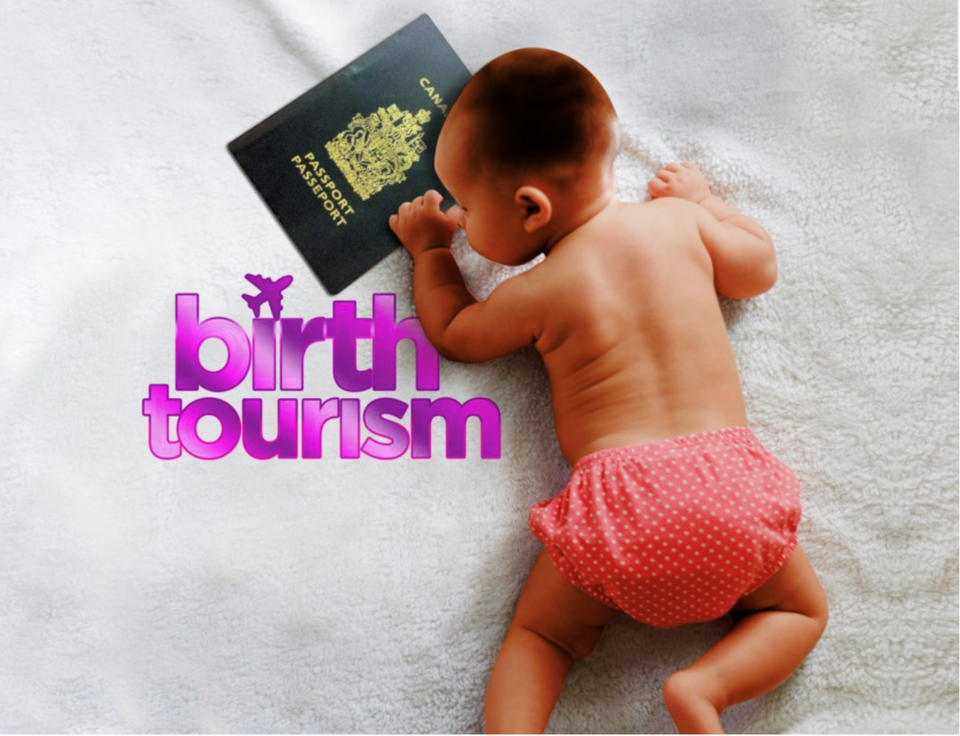
So-called “birth tourism” is when pregnant, non-Canadian women fly into Canada in order to give birth and secure citizenship for their babies.
In addition to receiving benefits, like healthcare and education, when the children become adults, they can also sponsor their parents to immigrate to Canada.
The Canada Border Services Agency has said previously that pregnancy is not a reason in itself to refuse entry to the country to a tourist.
However, if a foreign national is seeking entry to Canada for the purpose of undergoing medical treatment and can’t show he or she has the money to pay for it, then that person could be deemed as a potential excessive demand on health service.
The practice has been a hot topic for many years, especially in Richmond, due to its Chinese population and proximity to Vancouver International Airport.
Between April 2021 and March 2022, B.C. hospitals recorded 110 non-residents of Canada who paid to give birth, based on data obtained from the Canadian Institute of Health Information (CIHI). Last year, 194 such births were recorded.
However, in the year prior to the pandemic, a record 868 self-paying non-residents — the vast majority of whom are understood to be Chinese nationals on tourist visas — garnered automatic citizenship for their newborns.
Richmond Hospital has been, for many years, at the epicentre of the industry, with 502 non-resident births in 2019-2020.
And the so-called “birth hotels” in the city are not breaking any laws.
- Oldest Newest
This has been shared 0 times

Featured Flyer

Hong Kong OFFICE
Birth Tourism in Canada on the Rise since 2022
Exploring the complexities of immigration companies offering birth tourism services in canada.

In recent years, the phenomenon of “birth tourism” has captured significant attention as individuals and families seek Canadian citizenship for their children by giving birth within the country’s borders. This practice has given rise to the emergence of some exploitative immigration companies that offer tailored service packages to facilitate this process.
While the appeal of these services may initially be enticing for prospective parents, it is crucial to delve into the legal, social and ethical concerns that surround birth tourism. This article aims to explore the multifaceted issues associated with birth tourism and shed light on the potential implications for those who opt for these services.
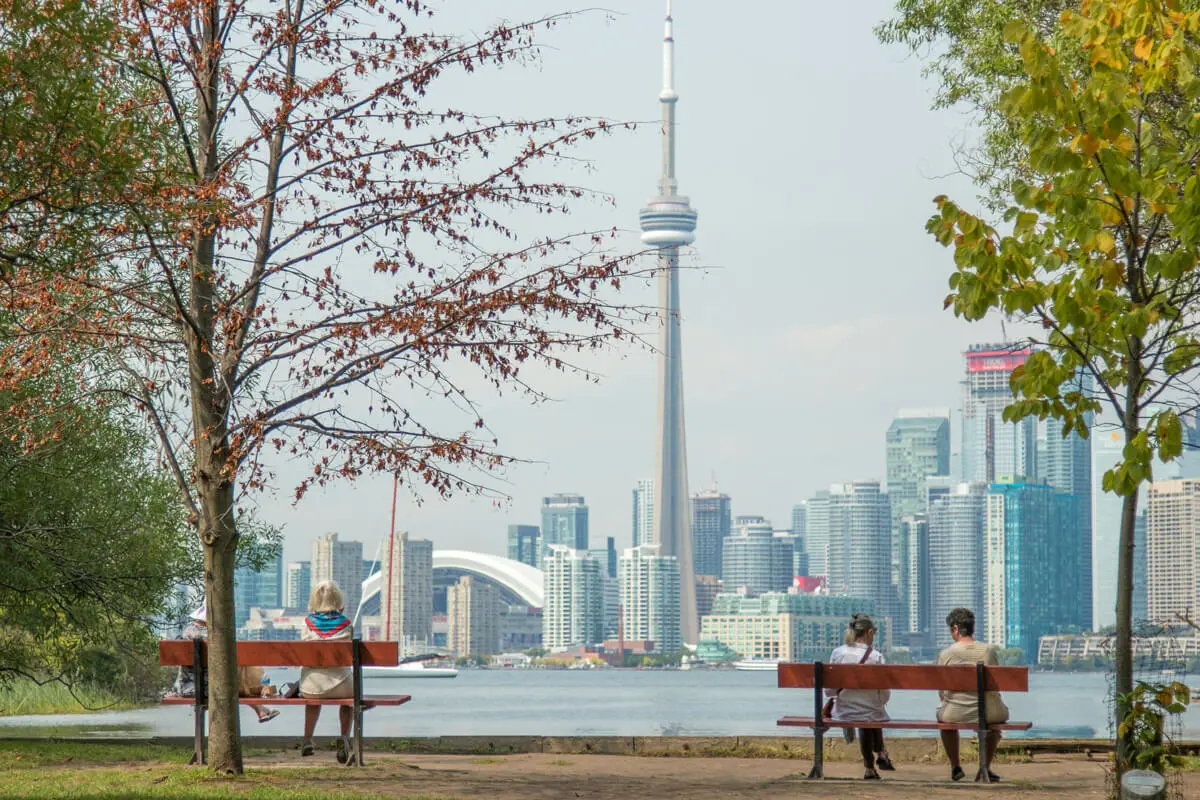
Birth Tourism key points
- Growing Birth Tourism in Canada : Birth tourism is on the rise in Canada, where individuals travel to give birth and secure citizenship for their child.
- Immigration Firms Facilitating Birth Tourism : Immigration firms offer packages to streamline the process, providing assistance with travel, accommodation, and legal paperwork.
- Legal and Social Concerns : Birth tourism raises legal, social, and ethical questions, including potential violations of immigration laws and negative societal perceptions.
- Risks Involved : Prospective parents face risks such as overstaying visas and misrepresentation, which can lead to deportation and bans from re-entry.
- Importance of Legitimate Immigration Pathways : It’s crucial to understand and consider established immigration pathways in Canada, offering stability and security for families seeking residency.
Understanding Birth Tourism
Birth tourism involves individuals traveling to a foreign country for the primary purpose of giving birth there, thereby securing citizenship for their child. In Canada, birthright citizenship is granted to those born on Canadian soil. Certain immigration Consultants have capitalized on this opportunity by providing comprehensive service packages designed to streamline the entire process for prospective parents. These packages often include assistance with travel arrangements, accommodation at “birth hotels”, and legal paperwork.
As an example, we recently came across an advertisement in Cambodia promoting such “services” (see the translation of the ad below). The consultancy firm openly markets their services by highlighting the benefits of Canadian citizenship by birth for children born in Canada. They emphasize that Canadian citizenship provides various privileges, such as access to education, healthcare, social benefits, and the potential for family reunification in the future. They go so far as to claim that having a Canadian citizen child can pave the way for family members to immigrate to Canada when the child reaches adulthood. Such a claim, to put it mildly, is nothing short of outrageous.

ENQUIRE NOW
Send This Inquiry To Our Office Nearest You * HONG KONG HONG KONG (Discovery Bay) CAMBODIA CANADA CYPRUS DOMINICA FRANCE GRENADA INDIA IVORY COAST MYANMAR PHILIPPINES SOUTH AFRICA THAILAND TÜRKIYE USA UNITED KINGDOM VIETNAM (Can Tho) VIETNAM (Da Nang) VIETNAM (Ha Noi) VIETNAM (Ho Chi Minh City)
Share this article
Challenges of engaging in birth tourism.
While birth tourism services may initially appear attractive, it is essential to consider the significant consequences and risks involved:
Risks of Overstaying
Engaging in birth tourism in Canada can potentially lead to violations of immigration laws, particularly if individuals exceed their authorized period of stay in Canada. Although birth tourists usually enter Canada with valid visitor visas, unforeseen pregnancy complications may arise during their stay, necessitating medical treatment or an extended period in the country. In such cases, birth tourists may find themselves in a situation where their initial visa period is not sufficient to cover the required medical care and recovery time. This can result in unintentional overstaying as they prioritize their health and the well-being of their child.
Overstaying visas in Canada can lead to severe legal repercussions, including the risk of deportation and future bans on re-entry. Such ramifications can have wide-ranging and enduring effects on individuals, potentially hindering their ability to visit or reside in Canada in the future. This underscores the crucial importance of prospective parents thoroughly evaluating the potential risks and consequences before venturing down the birth tourism path. Taking these considerations seriously is paramount to making informed decisions and safeguarding one’s future immigration prospects.
Risks of Misrepresentation
Birth tourists may misrepresent their reasons for entering Canada when applying for visitor visas or at the border. Instead of disclosing their intent to give birth in the country, they may falsely claim to be visiting for tourism or to visit friends and relatives. Misrepresentation of entry reasons carries severe consequences, potentially resulting in a five-year ban from Canada. Moreover, engaging in misrepresentation may complicate future visa or permit applications in other countries, as immigration authorities may view the previous misrepresentation in Canada as a sign of potential non-compliance with immigration regulations.
A notable case that highlights the importance of adhering to immigration regulations and maintaining transparency is Patel v. Canada (Citizenship and Immigration) , 2013 FC 1224. In this case, the Federal Court deemed it reasonable for immigration authorities to consider a permanent resident inadmissible to Canada due to the individual’s failure to disclose her pregnancy when she was granted permanent resident status. This case serves as a compelling reminder of the significance of honesty regarding one’s circumstances and intentions throughout the entire immigration process.
Negative Social Perceptions
Birth tourists and their children may face stigmatization and negative perceptions from local communities and fellow Canadians. They may be perceived as individuals who exploit the system or take advantage of Canadian resources without contributing to society. Some may also see birth tourists as individuals who are “gaming” the immigration system by exploiting loopholes and bending the rules to gain citizenship for their children. This perception can generate resentment among those who have followed the established immigration pathways and processes to gain immigration status.
Limited access to prenatal care:
Birth tourists may encounter difficulties in obtaining timely and adequate prenatal care. This becomes especially relevant if they are unfamiliar with the Canadian healthcare system or face language barriers that hinder effective communication with medical professionals.
As birth tourism has become more prevalent in recent years, certain hospitals, like Sunnybrook Health Sciences Centre in Toronto, have implemented measures to control the number of non-resident births and prioritize service provision to residents of their own communities. For example, the hospital has announced that non-resident patients without Ontario Health Insurance Plan coverage will not receive treatment. These circumstances can present significant challenges for birth tourists, leading to potential delays in receiving essential prenatal care and increasing the risk of pregnancy complications going unnoticed or untreated.
Choosing Birth Tourism vs. Established Immigration Pathways
Birth tourism in Canada is not considered the proper way to secure immigration status in Canada. While it may offer a shortcut to obtaining Canadian citizenship by birth for the child, it bypasses the established immigration processes and can have significant legal implications.
By choosing birth tourism, individuals are essentially prioritizing the acquisition of citizenship for their child over the legitimate immigration pathways that are available to qualified candidates. Canada offers numerous immigration options for individuals who meet specific criteria, such as entrepreneurs, investors, skilled workers, and family sponsorship programs. Obtaining immigration status through established programs provides families with stability and security. It offers a clear pathway for individuals and their families to establish themselves in Canada, knowing that they have the legal right to live, work, and study in the country. This stability allows families to plan for the future, pursue education, build careers, and enjoy the benefits of Canadian society.
Considering the above, it is highly recommended that prospective parents seek the expert guidance and assistance of qualified immigration lawyers when securing Canadian immigration status for their children and themselves. At Harvey Law Group , we boast more than three decades of experience in Canadian immigration matters, enabling us to offer precise and current information on immigration regulations, expertly navigate the legal process, and ensure strict compliance with the law throughout the immigration journey. By seeking consultation from our seasoned professionals, prospective parents can make well-informed decisions and pursue their immigration goals with confidence and peace of mind.
Request more information
If you are interested in learning more, please contact your local HLG office here for more details. Our team of lawyers would be pleased to offer you a complimentary consultation call to delve deeper into the details of the SUV program . please contact us by email at contact @harveylawcorporation.com or fill up the form in the article for more information .
Founded in 1992, Harvey Law Group (HLG) is a leading multinational law firm with offices across Asia, North and South America, Europe, and Africa to cater to your specific needs for immigration and beyond.
RELATED POSTS

Overcoming Challenges: Streamline Your Path to Citizenship by Ancestry | Birthright Citizenship

Navigating the Canada Startup Visa Program

Possible Repercussions Of Retaining An Illegal Immigration Consultant
Privacy overview.
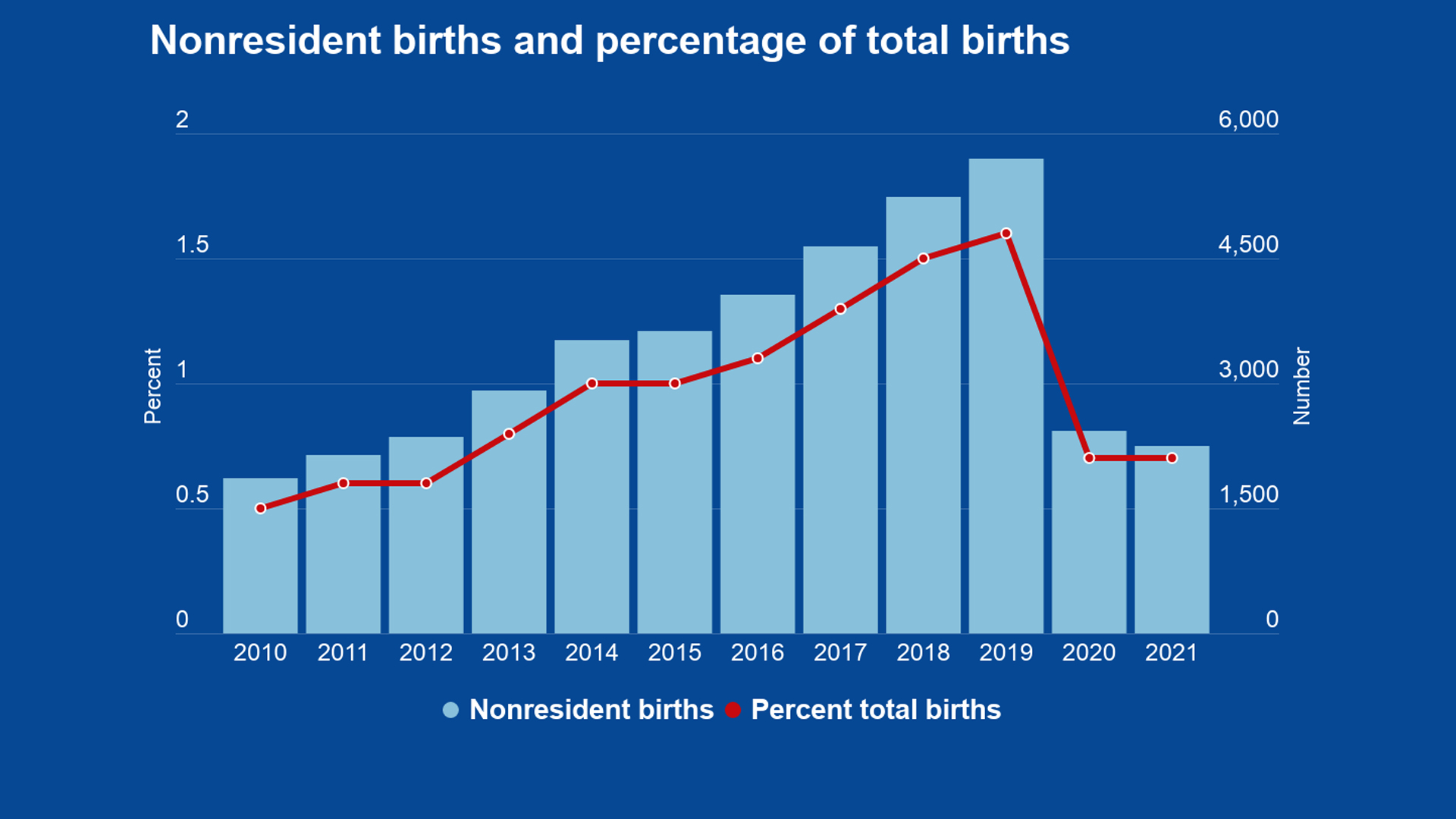
- Global Affairs
- Social Policy
Is birth tourism about to return now that travel restrictions have been lifted?

COVID-19 continues to provide the perfect natural experiment to assess the extent of “birth tourism” – when women visit Canada for the purpose of giving birth here and thus obtaining Canadian citizenship for their child. Two years in, the data shows a decrease of almost eight per cent, compared to 2020-21 and almost 52 per cent compared to the pre-pandemic 2016-20 average, in the number of “non-resident self-pay” births in Canada.
As Figure 1 indicates, there was a steady increase of non-resident births prior to the pandemic. But after COVID-related travel restrictions were implemented in 2020, there was a sharp drop, with no recovery in 2021. This provides a very good indication of the extent of birth tourism in Canada. Now that the restrictions are loosening and travel is once again opening up, it’s time for the federal government to revisit its policy on non-resident births and Canadian citizenship.
The decline to 2,245 in 2021 from 2,433 in 2020 occurred in all provinces save Quebec, which remained relatively stable (Table 1). The decline was particularly notable in British Columbia, where most birth tourists pre-pandemic were from China – a country most affected by travel restrictions. The drop is in stark contrast to steady increases over the previous five-year period.
A similar decline in visitor visas and birth tourists has been noted in the United States.
The percentage of non-resident births in Canada fell from slightly less than two per cent of total births in 2019 to 0.7 per cent in 2020 and has remained at that level. Given increased immigration, the percentage of non-resident births also fell during the same period.
As noted in previous articles , the non-resident self-pay code that is the basis for the analysis is broader than that of women who arrive on visitor visas. It includes international students, about half of whom are covered by provincial health plans, and other temporary residents. Visitor visas recovered to only 57 per cent of pre-pandemic levels in 2021-22 while visas for temporary workers have more than recovered from pre-pandemic levels. Visitor visas for Chinese nationals, one of the major groups, have recovered to only 21 per cent of former levels compared to 57 per cent of previous levels for all visitor visas. Chinese government travel-related restrictions are likely a significant factor in the reduced number.
Table 2 provides a hospital-level view of the impact of COVID, contrasting pre- and post-pandemic years in terms of non-resident and total births for the 10 hospitals with the largest percentage of non-resident births. Non-resident births continued to decline in most hospitals. British Columbia’s Richmond Hospital – the epicentre of birth tourism with its supportive “cottage industry” of “birth hotels” – has been the hardest hit. There was a decrease of 95.6 per cent compared to pre-pandemic levels.
This suggests that my initial estimate from 2018 that about 50 per cent of non-resident births were due to birth tourism was conservative, and that the percentage of “tourism births” is about one per cent of all births (or about 0.4 per cent of current immigration levels).

Three federal immigration ministers later, the government has not have followed up on its 2018 commitment to “better understand the extent of this practice as well as its impacts” following the first release of the Canadian Institute for Health Information numbers and related media attention. The 2021-22 decline understandably reduces political interest and pressure in addressing the issue, particularly at a time of government and stakeholder support of increased immigration, as the proportion on “non-resident” self-pay is only about 0.5 per cent of permanent resident admissions, having fallen from 1.7 per cent pre-pandemic.
Given the current focus on increased immigration, it is highly unlikely that the government will take action. The numbers are very small compared to the planned level of 500,000 immigrants to Canada in 2025 and Immigration, Refugees and Citizenship Canada’s current policy and operational challenges. However, given that visitor visas have largely reverted to pre-pandemic levels in 2022, growth in birth tourism can be expected in future years.
The government should address the policy deficit in this area. There appears to be public support for some action. A 2019 Angus Reid survey indicated that the vast majority of Canadians would support removing birthright citizenship for children born to women on visitor visas.
The use of CIHI data to quantify the extent of birth tourism, albeit approximately, highlights the potential in greater linkages between immigration and health data. With respect to birth tourism, the ability to distinguish between non-resident births for visitors, international students and temporary workers would provide greater precision on the extent of the practice.
It would also allow for more informed analysis and understanding of the health outcomes of immigrants and would identify opportunities for improvement.
The policy and operational questions remain as to whether the extent of birth tourism warrants an amendment to the Citizenship Act, visa restrictions on women intending to give birth in Canada, or other administrative and regulatory measures to curtail the practice. Because visa restrictions would be difficult to administer, and because regional administrative and regulatory measures may well encourage hospital and jurisdiction “shopping,” the “cleanest” approach would be an amendment to the Citizenship Act that would make Canadian citizenship dependent on one parent being a citizen or permanent resident, comparable to the situation in Australia .
A note on methodology
The data is from the CIHI ’ s Discharge Abstract Database, more specifically the responsible for funding program (RRFP) “ non-resident self-pay ” category, as well as totals for hospital deliveries. The RRFP data include temporary residents on visitor visas, international students, foreign workers and visiting Canadian citizens, and permanent residents. While Quebec has a slightly different coding system, CIHI ensures its data is comparable.
Health coverage for international students varies by provinces, but most are covered by provincial health plans. This is not the case in Manitoba and Ontario , and for some students in Quebec whose country of origin does not have a social security agreement with Quebec. The pre-pandemic baseline is the five-year average 2016-20.
Mackenzie Health ’ s Woman and Child program moved from Mackenzie Richmond Hill Hospital to Cortellucci Vaughan Hospital when it opened to the community in June 2021 .

You are welcome to republish this Policy Options article online or in print periodicals, under a Creative Commons/No Derivatives licence.
Republish this article
by Andrew Griffith. Originally published on Policy Options December 9, 2022
This <a target="_blank" href="https://policyoptions.irpp.org/magazines/december-2022/birth-tourism-may-rise-again/">article</a> first appeared on <a target="_blank" href="https://policyoptions.irpp.org">Policy Options</a> and is republished here under a Creative Commons license.<img id="republication-tracker-tool-source" src="https://policyoptions.irpp.org/?republication-pixel=true&post=105278&ga4=G-GR919H3LRJ" style="width:1px;height:1px;">

This work is licensed under a Creative Commons Attribution-NoDerivatives 4.0 International License .
Related stories

An improved civic education will help sustain our democracy

B.C. bill on international credential recognition is a good start but needs improvement

- Immigration
- Policy-making
Visible minorities have difficulty accessing the labour market
- Open access
- Published: 28 January 2022
Impact of birth tourism on health care systems in Calgary, Alberta
- Simrit Brar 1 ,
- Mruganka Kale 1 ,
- Colin Birch 1 ,
- Fiona Mattatall 1 &
- Medini Vaze 2
BMC Health Services Research volume 22 , Article number: 120 ( 2022 ) Cite this article
5966 Accesses
6 Citations
13 Altmetric
Metrics details
Birth tourism refers to non-resident women giving birth in a country outside of their own in order to obtain citizenship and/or healthcare for their newborns. We undertook a study to determine the extent of birth tourism in Calgary, the characteristics and rationale of this population, and the financial impact on the healthcare system.
A retrospective analysis of 102 women identified through a Central Triage system as birth tourists who delivered in Calgary between July 2019 and November 2020 was performed. Primary outcome measures were mode of delivery, length of hospital stay, complications or readmissions within 6 weeks for mother or baby, and NICU stay for baby.
Birth Tourists were most commonly from Nigeria (24.5%). 77% of Birth Tourists stated that their primary reason to deliver their baby in Canada was for newborn Canadian citizenship. The average time from arrival in Calgary to the EDD was 87 days. Nine babies required stay in the neonatal intensive care unit (NICU) and 3 required admission to a non NICU hospital ward in first 6 weeks of life, including 2 sets of twins. The overall amount owed to Alberta Health Services for hospital fees for this time period is approximately $694 000.00.
Birth Tourists remain a complex and poorly studied group. The process of Central Triage did help support providers in standardizing process and documentation while ensuring that communication was consistent. These findings provide preliminary data to guide targeted public health and policy interventions for this population.
Peer Review reports
Definitions
Birth Tourism: the practice of non-residents of a country traveling to a new country with the intention to give birth in the new country.
Birth Tourist : an Uninsured Prenatal Patient who is a non-resident who travels to a new country with the intention of giving birth there. In Canada, Birth Tourists do not qualify for publicly funded health care coverage, even if they are Canadian citizens, because they do not reside in Canada. Occasionally Birth Tourists have private health insurance that partially or entirely covers their medical bills.
Uninsured Prenatal Patient: a patient who does not have provincial healthcare but who resides in Canada. They may not have Alberta Healthcare Coverage (AHC) for various other reasons, including.
Convention Refugee : a person who meets the refugee definition in the 1951 Geneva Convention relating to the Status of Refugees (UN Refugee Agency, 1951). This definition is used in Canadian law and is widely accepted internationally. Health Care costs for Convention Refugees are covered by the federal government.
Refugee Claimant or Asylum Seeker: a person seeking refugee status whose case has not been decided.
Other: A pregnant patient who is neither a Convention Refugee nor Birth Tourist, but resides in Alberta. These patients may have an expired Canadian Work Permit, Visitor Visa, or Student Visa. They may also be undocumented meaning residing in Canada without legal documentation.
Jus soli: the principle of jus soli allows for a child born on Canadian soil to a visiting foreign national to obtain Canadian citizenship (Canadian Citizenship Act, RSC 1985, c.C-29).
The term Birth Tourism refers to the practice of a country traveling to a new country to give birth there for a variety of personal reasons. Such reasons may include: to obtain Citizenship for the infant in that country ( jus soli) ; the notion that the costs of medical care are lower in that country compared to the individual’s home country; the perception that medical care in that country is safer; and potential access to public schooling, healthcare, and sponsorship of other family members in the future. In recent years, discussions regarding Birth Tourism have been more prominent globally [ 1 ]. This has been a relevant topic in the United States, Canada, and in Hong Kong. It is difficult to capture the true extent of Birth Tourism. There is no legal requirement to capture this information nor is this information a prerequisite for a birth certificate [ 2 ].
A 2018 Canadian study showed an increase in both the proportion and absolute numbers of babies born to foreign nationals in nearly all provinces [ 3 ]. However, hospital coding used to capture uninsured patients does not selectively capture Birth Tourists. There are many other circumstances that may result in a nonresident service code including those described in our definitions under the ‘Uninsured Prenatal Patient’ [ 3 ]. Anecdotal reports indicate rising concern about the excess burden placed on the Canadian public healthcare system; many Canadian provinces are facing significant cost overruns within the health care system resulting in limited capacity to provide obstetrical care to local residents [ 4 ]. However, there has never been any large scale data collection regarding the actual numbers of Birth Tourists. There has also not been data collection regarding the payment of bills for service provided by those identified as Birth Tourists [ 5 ].
There are many unique aspects in the care provision of Birth Tourists and Uninsured Prenatal patients. For many providers in Canada, the notion of private payment for medical care is foreign and uncomfortable. Providers may be unsure of how to undertake the conversation with consistency and may not have the time required to do so in a systematic way. Additionally, many pregnant immigrant women without medical insurance often receive inadequate prenatal care [ 6 ]. As Jarvis et al. (2019) reviewed, this population is more likely to present late in pregnancy for care, receive less prenatal testing, and to receive inadequate prenatal follow up. Poor prenatal care has been associated with poor birth outcomes including increased risk of preterm delivery and low birth weight [ 6 ]. This is further compounded by the differences in medicolegal protection for providers when treating uninsured patients. The Canadian Medical Protective Association’s Governing Law and Jurisdiction Agreement was created to assist in ‘establishing Canadian jurisdiction for any potential legal actions that may result from care or treatment provided by Canadian physicians or healthcare organizations to non-residents’ [ 7 ] [ 8 ]. The complexity of all of these issues can be very difficult for care providers to navigate.
Increasing Birth Tourism in Calgary, Alberta, has raised similar concerns about costs to the healthcare system and the access to care for both Uninsured Prenatal patients and Birth Tourists. There was a lack of standardized process to identify and appropriately coordinate medical care for this population. The Uninsured Prenatal patient population is often more complex with multiple social issues. In our opinion, this was a far more complex group to initially establish a consistent streamlined process for. As such, the Department of Obstetrics and Gynecology worked closely with Low Risk Provider groups within Calgary to establish a consistent and streamlined process for Birth Tourists arriving in Calgary. This process would require distinguishing Birth Tourists from other patients without provincial health insurance. Data Integration, Measurement and Reporting (DIMR), which is current standard of data extraction, does not separate birth tourists from non-birth tourists. Subsequently, we hoped these changes would help to better support Uninsured Prenatal patients. However, that process has not been streamlined to the same degree at this time.
Our primary objective was to collect detailed information on pregnant persons without Alberta Health Care (AHC) coverage in order to identify Birth Tourists in Calgary, evaluate their clinical outcomes, and characterize their financial and resource burden on the healthcare system. Our secondary objective was to collate the information collected to contribute to advancing the literature on Birth Tourism as this topic is relevant across the globe.
Procedures for patients without AHC
We developed a centralized intake process for prenatal patients without AHC delivering in Calgary. Starting in July 2019, all prenatal referrals in Calgary for patients without AHC coverage were redirected to a Central Triage (CT) office. This office was consistently run by one administrator with the support of a three member physician team. Patients were administered a questionnaire and subsequently triaged to a care provider based on patient preference, risk profile and city quadrant of residence. Care providers, with the exception of midwifery who had a separate process for billing of patients, then invoiced CT directly. Invoices were required to be consistent with what would have been billed to Alberta Health and were reviewed by the physician leads for the same e.g. excess modifier codes could not be billed. In addition to ensuring standardized payments for services, CT ensured that the Canadian Medical Protective Association’s Governing Law and Jurisdiction form for all providers and Alberta Health Services was reviewed and completed as well as consent for information sharing among providers as well as Alberta Health (AH). Patients stayed in contact with CT with respect to when they would be leaving the country and timing of refund. In situations where English was not the primary language, language line or other translation services (through family or physician) was used. Refunds were issued once all invoices were received (approximately eight weeks postpartum). If a patient refused CT, we endeavored to follow up with how and where the patient received care.
A ‘Central Triage package’ was reviewed and provided to all patients deemed to be Birth Tourists in person, via email, or via registered mail. Within this package, there was full disclosure of the concern regarding potential cost burden of Birth Tourism within Calgary and the rationale for the creation of CT – particularly to deter the process of Birth Tourism. A deposit of $15,000 was collected and held in trust by CT from each Birth Tourist to cover cost of physician service fees. In alignment with both the Alberta Medical Association (AMA) and the College of Physicians and Surgeons of Alberta (CPSA), patients were also able to pay for their fees individually following the service and care was never refused. The physician service fees for Birth Tourists were billed at a rate of five times the rate determined by AH in accordance with the Uninsured Services guidance document provided by the Alberta Medical Association (AMA) [ 8 ]. Service fees for uninsured patients were not above standard Schedule of Medical Benefits (SOMB) rates and deposits ranged from no deposit to $2500. A $300 administrative fee was invoiced to Birth Tourists to pay for administrative services. The physician administrators did not receive any payment for their administrative role. Information regarding the SOMB codes, AMA and CPSA was provided to all of the patients.
The CT system also sought to create a system by which uninsured patients could be identified quickly and thus be provided support letters and advocacy for more timely access to AHC given the impending medical care required. These scenarios were also assessed on a case by case basis allowing for provider discretion. Scenarios involving Uninsured Prenatal patients were found to be more complex with more individuation required which was another reason to not formally include them in the analysis. Our past experience with Uninsured Prenatal patients showed often face significant economic barriers that would make it difficult to pay an advance deposit for medical services. These patients were referred to an appropriate obstetrical provider with full understanding that appropriate medical care would be provided regardless of ability to pay. Physician fees for services provided to Convention Refugees were billed directly to the federal government.
Although a deposit was collected by CT to cover the cost of physician services, a deposit was not collected to cover Alberta Health Services (AHS) site fees for hospital stay which are different for each hospital. AHS site fees are charged based on a daily rate. As part of the CT package, all Birth Tourists were given a copy of the current AHS site fee schedule and were made aware that the AHS finance office would bill them directly at the time of hospital admission.
The questionnaire was developed by the study authors (see Appendix 1 ). It included open ended questions exploring the patient’s reasons for pursuing childbirth in Canada, and specifically in Calgary. We collected information regarding the patient’s country of origin (we utilized the patient’s stated Country or place of current residence), citizenship, date and port of entry to Canada, refugee status, and the type of visa possessed by the patient. For patients who lived in Alberta prior to pregnancy, we asked questions regarding how long they had lived in Alberta/Canada, employment history in Alberta/Canada and whether they previously held AHC insurance or provincially funded health care insurance from another Canadian province or territory. The questionnaire did not screen for specific medical conditions, but we did ask patients whether they had any pre-existing medical conditions or history that would potentially impact delivery. This better allowed CT to triage to the appropriate care provider.
The CT team identified Birth Tourists by questionnaire responses in the following ways: (1) patient self-identifying as a Birth Tourist (2) the Birth Tourist arrived in Canada while pregnant, on a visitor visa, and had no intention to live permanently in Canada immediately following the delivery. Women who were classified as Uninsured Prenatal Patients were excluded. If there was a case that was unclear, the case was brought to the three-member physician team and reviewed sometimes with the support of hospital social work. There were no cases where consensus was not achieved through this method. Most patients were administered the questionnaire during the antenatal period, although, some presented for the first time at the hospital during the time of delivery. In this circumstance, the delivering physician would refer the patient to CT and attempts were made to administer the questionnaire postpartum. Occasionally a deposit was also collected post- partum to streamline invoice payment.
Physicians sent invoices for services provided directly to CT, who then paid physicians from the deposit. An itemized receipt for all physician services was provided to each Birth Tourist and a refund was issued to the Birth Tourist where applicable. Any billing codes used were done so in the standard of the Alberta SOMB and were required to match the service provided. The physician invoices including the billing codes were also used to determine mode of delivery or any additional care required. Comments provided on these invoices or from the patients following delivery to administration at CT were also collected.
We completed a qualitative descriptive analysis using information obtained from the CT patient questionnaires and physician invoices from July 1, 2019 to November 1, 2020. Only questionnaires completed by persons identified to be Birth Tourists were included in the review, with all identifying information removed. A data dictionary was used to collect the variables analyzed (Appendix 2 ). Data on delivery and readmission for Birth Tourists was obtained through provider invoices as well as patient reporting.
A cost analysis of physician service fees and AHS hospital site fees was performed by review of AHS hospital stay financial data as well as review of the physician invoices provided.
A waiver of consent was obtained for this study. Most of the Birth Tourists included in the analysis were no longer in Calgary during the study period and the resources required to contact all patients exceeded the resources available to the study team. No patients or care providers were directly contacted. The study team reviewed existing data, documents and records excluding the hospital chart. Ethics approval for this study was obtained from the Conjoint Health Research Ethics Board at the University of Calgary (REB20-0026). This study was unfunded.
In total, 102/227 patients captured by CT from July 15, 2019 to November 1, 2020 were identified as Birth Tourists. The 125 patients who were not Birth Tourists but instead Uninsured Prenatal patients were not included in the analysis. 89/102 (87%) patients were identified by direct referral to CT. The remaining 14 (14%) Birth Tourists were identified after delivery by invoices from physicians. The average and median maternal age was 32 years (range 20–45, SD 5.5). Of these women, 42% had not had a previous live birth, 42% were multiparous, and parity of 16% was unknown. There were 5/102 (5%) Birth Tourists who self-referred to midwives for home birth or birth center delivery. 83/102 (81%) had an encounter with an AHS Calgary zone hospital. Of the remaining 19 patients (19%), 8 were lost to follow up, 2 delivered elsewhere in Alberta, 3 went back to their home country for delivery (Mexico, Trinidad, and Tanzania, respectively), 3 stated they would seek Midwifery care for home birth within Calgary, and 3 went to Ontario. There were 17 (17%) Birth Tourists that did not have a Regional Health Number.
83% of patients stated they came to Canada with a Visitor Visa. The type of visa for 14% of patients was unknown, 2% had possessed a Student Visa, and 1 patient was a Canadian Citizen who had never lived in Canada. The date of arrival in Canada was known for 77/102 patients; the average time from arrival in Calgary to the expected due date was 87 days (SD 76) with a range of 7 to 502 days. Exact date of departure from Calgary is known for 34/102 patients; for these patients, the average length of stay in Calgary after delivery was 49 (range 18–80) days;
Birth Tourists were most commonly from Nigeria (25%), Middle East (18%) China (11%), and India (8%) and Mexico (6%). There were no birth tourists from Western Europe or Australia. 77% of Birth Tourists stated that their primary reason to deliver their baby in Canada was for the desire for a Canadian baby who would be eligible for Canadian citizenship. 8% stated their reason to deliver in Canada was to access better health care. 40% of questionnaire respondents chose Calgary specifically because they had family and/or friends in the city. We were unable to expand further beyond this on other reasons for delivery in Canada or outside their home countries.
38% of patients delivered vaginally and 35% delivered by cesarean Sect. 29% of deliveries were of unknown type. Two mothers required readmission to hospital within 6 weeks postpartum; one was admitted to ICU for 5 days for cardiac reasons, and another was admitted for severe preeclampsia and stroke. Another patient had severe postpartum preeclampsia but discharged herself against medical advice. Her subsequent outcome is not known. Nine babies required stay in the neonatal intensive care unit (NICU) and 3 required admission to a non NICU hospital ward in first 6 weeks of life, including 2 sets of twins. The average length of stay was 18 days with a range of 1–63 days.
With respect to maternal health history prior to arrival in Canada: 9 had a history of previous cesarean section, 6 patients reported having some form of Diabetes Mellitus, 3 arrived with a cerclage in place, 2 arrived acutely hypertensive, 2 had history of myomectomy, 2 had threatened preterm labour (one actively in preterm labour), 2 had blood borne infection, and 2 had known twin pregnancies. There was one new diagnosis of HIV following arrival in Canada.
There was AHS billing information captured for 83/102 (81%) Birth Tourists (Appendix 2 ). The average amount of fully paid AHS maternal invoices was $6234.92 (Appendix 2 ). The average amount of fully paid AHS neonatal invoices was $4185.91 (Appendix 2 ). There were 8 cases (10%) where AHC was received for the newborn but there was an outstanding invoice for the mother (Appendix 2 ). There were 17 cases (21%) where there was an unpaid neonatal bill and 29 cases with an unpaid maternal bill (35%) (Appendix 2 ). The outstanding fee amount is known for 29 mothers and 17 newborns (including 2 sets of twins) (Table 1 , 2 and 3 ). As of the date of this report, approximately $290,000.00 of fees remain outstanding for the 29 mothers (average $9704.62; range $948- $72,445), and approximately $404,000.00 remains outstanding for 17 newborns (average $23, 747.65) (Table 1 , 2 and 3 ).
Of the Birth Tourists identified through CT, 54/88 (61%) paid the $15 000 deposit for physician services (Appendix 2 ). Of these, 7 had additional invoices above the total deposit amount (range $300- $2760.92). Two of those individuals did not pay the outstanding invoice ($980 and $2219.29). For the majority of these patients (89%), the 15,000.00 deposit was adequate for physician fees, and the patient received a refund (avg. $5484.70). Of the Birth Tourists identified through CT, 34/88 (39%) did not pay the deposit. Reasons provided included: 10 patients indicated that they paid the provider (obstetrician, family physician, or midwife) directly for fees incurred, 20 refused to pay with no other reason provided, one self-referred to midwifery for delivery at home, no reason was provided for the remaining 3 individuals who did not pay the CT deposit.
Of the 227 patients captured by CT, 125 (55%) were deemed to not be Birth Tourists and were classified as Uninsured Prenatal patients. As stated earlier, this group was not included in the analysis. However, we do feel it prudent to state that we feel a process is urgently required to support this population. Since the initiation of this project, the CT team has been able to directly liaise with AHS to help expedite AHC insurance for those that qualify. We would advocate for a similar process that is available to all eligible women across the province. Having a system in place to distinguish Uninsured Prenatal patients is of benefit to the patient and the provider. It provides a means to better identify and support those for whom health care coverage can be optimized and also allows an opportunity to better support the needs of the patient. The additional support required can be difficult for individual community providers to provide in isolation. Our process did not specifically have a role for social work and additional community supports. However, we do feel it would be beneficial to create a dedicated process to support Uninsured Prenatal patients not only in the acquisition of AHC but also the opportunity for the provision of community and social supports that may be required. Women with an undocumented status may delay prenatal care due to concerns of being deported, and as a result increase adverse outcomes. We feel this population would benefit from additional community support and discussion of ensuring safe treatment without the threat of deportation and also creation of a system where cost is not a barrier to accessing care.
Birth Tourists represented 44% of patients seen by CT. Of these, 87% of Birth Tourists were identified by direct referral to CT. There may be a few explanations for non-referral to CT. There is a complex network of care providers in Calgary which likely led to slow dissemination of the information regarding CT. There was some hesitancy from obstetrical providers to refer to CT perhaps due to pre-existing relationships or the feeling of obligation within communities with higher rates of Birth Tourism, the concern that there would not be a distinction between Birth Tourists and other Uninsured Prenatal patients, and the concern that patients may avoid care altogether. Through standardized communication we were able to address a common issue identified by providers: the fact that Birth Tourists were receiving incorrect and often varied messaging regarding costs associated with delivery, not only from their friends and online forums, but also from different obstetric providers in Calgary. Previously, the practice of different providers charging different fees for the same service led to ‘deal making’ between providers and Birth Tourists. Clear communication and collection of a standardized deposit in advance for physician services mitigated some of this problem. Many potential patients contacted the CT office from overseas prior to their arrival in Canada. Physicians did not have to collect payment in hospital or postpartum, which is often very difficult. It is concerning that 39% of patients did not pay the deposit. The reasons for this remain unclear and were not explored in the breadth of this study. Though some of these patients did ultimately pay for the physician service provided following the delivery, it was not clear to CT if all providers were paid and what amount.
83/102 (81%) of Birth Tourists had an encounter with an AHS Calgary Zone hospital. Of the remaining 19 patients (19%), 8 were lost to follow up. That is not insignificant and speaks to the need for greater administrative support to ensure that both mother and baby had access to care in a timely fashion. 5% of Birth Tourists identified that they would be self-referring to midwifery specifically for home birth or birth center delivery. Unfortunately, we were not able to capture the financial data with respect to cost of home birth versus birth center in such scenarios. Midwifery care is unique funding model in that there is a direct contract between AHS and the Alberta Association of Midwifery [ 9 ]. There are only a certain number of allocated ‘spots’ for patients as such there is a wait list for this model of care. It is possible that the number of patients who transferred to midwifery was in fact higher than 5% as Alberta does not have coordinated data for maternity care that includes home births. This may also provide some explanation for the 17 patients with no Regional Health Number. In addition to potentially delivering at home, they could also have delivered outside of the city or province or may have been an error in invoice creation in that it simply wasn’t added. Due to the difficulty in consistent recording, we were only able to obtain information that one midwifery home birth required a subsequent NICU admission. An additional limitation noted in through our process with the separate process of fee collection and assessment by Midwifery. We feel it would be of benefit to all providers in patients to have one streamlined process for all providers as this avoids duplication and improves efficiency.
The majority 76/102 (75%) of visas granted to patients seen through CT were Visitor Visas. Some patients did state they had taken out private insurance. Our process did not have consistent collection of private insurance information or the extent of coverage. This is a limitation of our study and examination of this in further studies may help to better understand the financial options available to patients.
The average time from arrival in Calgary to delivery/EDD was 87 days with a range of 7–502 days (average 87 days). The 502 days reflects an individual who ultimately left and returned to their home country. This is a limitation of our data in that we are not able to capture exactly when all individuals left. This also underscores the difficulty in capturing a subset population of uninsured and undocumented pregnant women. When the time of stay surpasses 365 days, the individual can no longer be considered as a tourist [ 10 ]. The individual who stayed 502 days self-identified as a tourist. We do feel that the data on the uninsured undocumented pregnant women is lacking and further investigation is also required in this area.
The average of 87 days arrival in advance of EDD or delivery demonstrates potentially significant implications in care provision and supports the evidence that many women in this population seek care late in pregnancy. Women who arrive very close to the end of pregnancy or postdates may be in a rush to obtain care. Potential for complications including elevation in maternal blood pressure and stillbirth rise as women approach and pass their due date. This rush for care puts an increased stress of immediate care provision in an already stressed system. Improved education with VISA issuance would be helpful to inform women of the risks they may be taking in traveling to deliver overseas late in pregnancy.
Almost a third of women presenting to CT had a known preexisting medical condition. This included one person actively experiencing preterm labour and three with a cerclage in the current pregnancy. Many Birth Tourists were concerned about hospital stay > 24 h due to the additional daily AHS fee. In some cases this lead to Birth Tourists discharging themselves Against Medical Advice. The potential for increased morbidity is significant. A limitation to our study is that we were not able to assess if advance knowledge of the CT process may have changed the decision to undertake Birth Tourism.
In comparison to the 35% of Birth Tourists delivered cesarean section, the general cesarean section rate in Alberta in 2018 was 31% [ 11 ]. The NICU admission rate in Calgary is approximately 7%; whereas the NICU admission rate among neonates born to the Birth Tourist group was 9%.
The time from delivery to departure was 49 days with a range of 18–80 days. Approximately one third of patients did not specify a date of departure but stated they would be leaving ‘after delivery. Though the data is limited by the fact that 1/3 did not specify an actual date, the average of 49 days to departure is consistent with the definition of a Birth Tourist not permanently staying Canada at that given time. This does have implications for the Canadian born child’s ability to access Alberta Health care. Specifically, a person must make Alberta his/her home and be physically present in Alberta at least 183 days in a 12-month period (not including a tourist, transient or visitor). 17% of children born to mothers identified as ‘birth tourists’ received AHC with a third of those mothers still having unpaid bills for maternal care. This poses the question as to whether or not the criteria for obtaining Alberta Health Care for neonates born to mothers without Canadian Health Care is rigorous enough.
The most common reason stated by the patients in our study for travel to Canada to give birth for ‘a Canadian baby’. A Canadian citizenship is perceived as a valuable item not only in the short term but also long term for health care and education. The long term implications to this are complex and multifaceted and should not be simplified. However, our data does show that the Canadian Citizenship is held in value and is provided as reason for Birth Tourism.
The overall amount owed to Alberta Health Services during the study period is almost $700,000 (Table 4 ). There were two sets of twins during the study period both sets requiring NICU stays. The average length of stay for babies taken to the NICU was 18 days with a range of 1–63 days. One set of twins occupied a NICU bed for 50 and 63 days respectively. NICU bed capacity has been an ongoing concern in Calgary zone with twins contributing to the concern given the need for two beds. The $700,000 amount also did not capture the cost to the system for midwifery care or patients who subsequently left Calgary to deliver in a surrounding area. We are concerned that Birth Tourists may be leaving Calgary to find cheaper care in overburdened surrounding regions. This emphasizes the need for a standard provincial process to provide clear and transparent guidance to both patients and providers. A significant limitation of our study was the inability to account for all possible financial and resources burdens e.g. both outpatient and inpatient imaging and laboratory services, physicians who are funded by Alternate Funding Plans (AFPs), or support from ancillary staff.
Our AHS financial data was not clearly outlined in terms of what costs were paid. We do feel that moving forward a clearly itemized invoice for hospital services should be provided to patients as well as CT. There were a number of people who were issued refunds from CT for physician service fees yet still had outstanding AHS fees owing. We propose to only issue CT refunds once a fully paid hospital invoice is shown. A further limitation of our financial analysis was that we did not include foreign parents hiring Canadian surrogates to carry a child who will leave the country.
Another limitation of our study was that all out of country patients were not identified through the CT. These cases were often recognized through communication from ancillary care providers such as pediatrics asking for clarification on billing. Some out of country patients presented for the first time at delivery. There were also some out of country patients making individual arrangements with maternity care providers that also came to light when additional care providers asked for clarification regarding billing. Given the lack of a robust system of data collection, it is very possible that Birth Tourists and Uninsured Prenatal patients were missed. Unfortunately, we were also unable to assess which women remained in Canada after expiration of their visitor visa. There were many scenarios in the financial data were there were outstanding maternal charges, AHC was obtained for the infant and there was no referral to CT. It is possible that some of these women were not truly Birth Tourists but rather Uninsured Prenatal patients that overstayed a visa and we were not able to capture the specifics of their scenario.
Our analysis overlapped with the Covid-19 pandemic. We had anticipated birth tourism to drop to almost zero with the lack of air travel. However, that was not the case, suggesting that at a time of reduced international travel, birth tourism continued. It would be important to collect data on an ongoing basis as we suspect that rates of birth tourism in past and future years may be higher.
The process of Central Triage did help support providers in standardizing process and documentation while ensuring that communication was consistent.
The process 1) enabled us to differentiate Birth Tourists from non-Birth Tourists, which is something that DIMR data has been previously unable to, and thus identify populations that may need additional support 2) ensure that physicians are more likely to get paid for services rendered 3) standardize a fee schedule across the city for Birth Tourists. We do feel that an area of further investigation that is required is better understanding the non-Birth Tourist population. This group seems to have greater complexity in terms of background and potential need for support.
With increasing strain on healthcare budgets, outstanding patient invoices warrant attention. In a publicly funded system that is often under strain, we do feel that our process of CT did help to improve efficiency and provide more timely access to appropriate care for Birth Tourists. We do believe that having a clearly delineated policy for Birth Tourists would allow for better collection of data, consistency of messaging and communication between all parties involved in health care from the patient to the frontline worker to the administrator. There may be unintended consequences of such policy on the non-Birth Tourist group, in particular the undocumented patient. It would be imperative that the determination of Birth Tourists was very clear and not reliant on self –identification alone.
Availability of data and material
The datasets used and/or analyzed during the current study are available from the corresponding author on reasonable request.
Folse, B. (2017). Aspirational migration: The case of Chinese birth tourism in the U.S. (Master’s thesis). Retrieved from Proquest. (10599566)
Gaucher, M., & Larios, L. (2020, January 20). Birth tourism and the demonizing of pregnant migrant women. Policy Options. https://policyoptions.irpp.org/magazines/january-2020/birth-tourism-and-the-demonizing-of-pregnant-migrant-women/
Griffith, A. (2018, November 22). An analysis of hospital financial data shows that birth tourism is rising, and not just in BC. The impact cannot be passed off as insignificant. Policy Options. https://policyoptions.irpp.org/magazines/november-2018/hospital-stats-show-birth-tourism-rising-in-major-cities/
Fayerman, P. (2019, May 15). Richmond hospital leads the way as birth tourism continues to rise. Saltwire Network. https://www.saltwire.com/news/canada/richmond-hospital-leads-the-way-as-birth-tourism-continues-to-rise-311792/?location=newfoundland-labrador
Burns-Pieper, A., & Mayor, L. (2020, January 4). ‘All about the money’: how women travelling to Canada to give birth could strain the health-care system. CBC. https://www.cbc.ca/news/canada/birth-tourism-strain-1.5413296
Jarvis C, D’Souza V, Graves L. Uinsured Pregnant Patients: Where do we Begin? J Obstet Gynaecol Can. 2019;4:489–91. https://doi.org/10.1016/j.jogc.2018.10.008 .
Article Google Scholar
Mattatall F. Uninsured maternity patients in Calgary: local trends and survey of healthcare workers. J Obstet Gynaecol Can. 2017;39(11):1015–20. https://doi.org/10.1016/j.jogc.2017.05.002 .
Article PubMed Google Scholar
Canadian Medical Protective Association (2014). Governing Law and Jurisdiction Agreement. https://www.cmpa-acpm.ca/en/advice-publications/risk-management-toolbox/governing-law-and-jurisdiction-agreement
Alberta Health Services (2021). Midwifery Services. https://www.albertahealthservices.ca/info/Page9271.aspx
https://www.unwto.org/glossary-tourism-terms
http://www.ahw.gov.ab.ca/IHDA_Retrieval/selectSubCategoryParameters.do
Download references
Acknowledgements
Not applicable
No funding received to assist with the preparation of this manuscript.
Author information
Authors and affiliations.
Department of Obstetrics and Gynecology, University of Calgary, Calgary, Canada
Simrit Brar, Mruganka Kale, Colin Birch & Fiona Mattatall
Department of Family Medicine, University of Calgary, Calgary, Canada
Medini Vaze
You can also search for this author in PubMed Google Scholar
Contributions
All authors whose names appear on the submission. made substantial contributions to the conception or design of the work; or the acquisition, analysis, or interpretation of data; or the creation of new software used in the work; drafted the work or revised it critically for important intellectual content; approved the version to be published; and agree to be accountable for all aspects of the work in ensuring that questions related to the accuracy or integrity of any part of the work are appropriately investigated and resolved. All authors read and approved the final manuscript.
Corresponding author
Correspondence to Simrit Brar .
Ethics declarations
Ethics approval and consent to participate.
Ethics approval was obtained through IRISS (Institutional Research Information Services Solution) through the University of Calgary (REB 20–0026). The study and all methods were performed in accordance with the Helsinki Declaration as revised in 2013. A waiver of consent was requested and approved through IRISS as the research could not be reasonably executed as most patients had left the country and the resources required to contact all patients exceeded the resources available to the study team.
Consent for publication
Competing interests.
The authors have no competing interests.
Additional information
Publisher's note.
Springer Nature remains neutral with regard to jurisdictional claims in published maps and institutional affiliations.
Supplementary Information
Additional file 1., additional file 2:, additional file 3., rights and permissions.
Open Access This article is licensed under a Creative Commons Attribution 4.0 International License, which permits use, sharing, adaptation, distribution and reproduction in any medium or format, as long as you give appropriate credit to the original author(s) and the source, provide a link to the Creative Commons licence, and indicate if changes were made. The images or other third party material in this article are included in the article's Creative Commons licence, unless indicated otherwise in a credit line to the material. If material is not included in the article's Creative Commons licence and your intended use is not permitted by statutory regulation or exceeds the permitted use, you will need to obtain permission directly from the copyright holder. To view a copy of this licence, visit http://creativecommons.org/licenses/by/4.0/ . The Creative Commons Public Domain Dedication waiver ( http://creativecommons.org/publicdomain/zero/1.0/ ) applies to the data made available in this article, unless otherwise stated in a credit line to the data.
Reprints and permissions
About this article
Cite this article.
Brar, S., Kale, M., Birch, C. et al. Impact of birth tourism on health care systems in Calgary, Alberta. BMC Health Serv Res 22 , 120 (2022). https://doi.org/10.1186/s12913-022-07522-4
Download citation
Received : 25 June 2021
Accepted : 30 December 2021
Published : 28 January 2022
DOI : https://doi.org/10.1186/s12913-022-07522-4
Share this article
Anyone you share the following link with will be able to read this content:
Sorry, a shareable link is not currently available for this article.
Provided by the Springer Nature SharedIt content-sharing initiative
- Birth tourism
- Medically uninsured
BMC Health Services Research
ISSN: 1472-6963
- General enquiries: [email protected]
Language selection
- Français fr
Temporary residents: Persons wishing to enter Canada for the purpose of giving birth
This section contains policy, procedures and guidance used by IRCC staff. It is posted on the department’s website as a courtesy to stakeholders.
Under paragraph 3(1)(a) of the Citizenship Act, persons born in Canada are Canadian citizens. This right applies to all persons born in Canada, irrespective of the status in Canada of their parents, other than persons born to accredited diplomats.
There are no elements of the Immigration and Refugee Protection Act (IRPA) that refer to this right. Giving birth in Canada does not represent a violation of any terms or conditions that may be applied to a temporary resident. Thus, there is no provision in the IRPA to refuse a temporary resident visa (TRV) solely on the basis of the intent of the applicant to give birth in Canada.
When it is known that an applicant is pregnant, assessment of the application should focus on the requirements applied to all applicants for a TRV. The fact of the pregnancy may be an element in the assessment but only insofar as it affects the assessment of the primary requirements for issuance of a TRV:
- Do applicants have sufficient funds?
- Will they leave Canada at the end of their period of authorized stay?
- Are they admissible?
Consideration of the pregnancy and the stated or apparent intent to give birth in Canada must relate back to one of these essential requirements for TRV issuance.
Guidelines for persons coming forward for medical treatment may provide officers with assistance in assessing applications from persons who are known to be pregnant and intending to give birth in Canada at the time of the TRV application. However, it is important to note that pregnancy would not normally present concerns regarding medical inadmissibility.
With the introduction of the Temporary Public Policy Regarding Excessive Demand on Health and Social Services on June 1, 2018, the health-care costs related to a high‑risk pregnancy (prenatal care and delivery) do not exceed the excessive demand threshold. An assessment of excessive demand on health or social services do not apply to the future child, who will become a citizen at birth. Concerns regarding the demands that may be placed on health and social services by the child after birth in Canada may not be used in assessing the medical admissibility of the TRV applicant.
In applying the guidelines on temporary residents seeking medical treatment in Canada, officers should focus on available financial support as part of their assessment of admissibility.
A medical examination should be requested only in exceptional cases, where the information from the examination would be material to the assessment of the application.
The application form for a TRV asks the applicant if they or any accompanying family members have any physical or mental disorders that will require social or health services during their stay in Canada. Answering “No” to this question should not normally be considered misrepresentation in the case of a pregnant applicant, given the terminology used. Pregnancy may not normally be viewed as a “medical condition.”
However, pregnancy or the intent to give birth in Canada may be material facts in the assessment of the application, which, if we are not advised of the pregnancy, may go unexamined; such facts may be material to the assessment of arrangements for treatment, of the financial ability to cover the costs of treatment or of the intent to depart from Canada, for example. Therefore, in some cases, the intentional concealment of intent to give birth in Canada may lead to an examination of admissibility under section 40 of the IRPA.
Page details
Canada: Birth Tourism On The Rise: Exploring The Complexities Of Immigration Firms Offering Birth Tourism Services In Canada

In recent years, the phenomenon of "birth tourism" has captured significant attention as individuals and families seek Canadian citizenship for their children by giving birth within the country's borders. This practice has given rise to the emergence of some exploitative immigration firms that offer tailored service packages to facilitate this process. While the appeal of these services may initially be enticing for prospective parents, it is crucial to delve into the legal, social and ethical concerns that surround birth tourism. This article aims to explore the multifaceted issues associated with birth tourism and shed light on the potential implications for those who opt for these services.
Understanding Birth Tourism
Birth tourism involves individuals traveling to a foreign country for the primary purpose of giving birth there, thereby securing citizenship for their child. In Canada, birthright citizenship is granted to those born on Canadian soil. Certain immigration firms have capitalized on this opportunity by providing comprehensive service packages designed to streamline the entire process for prospective parents. These packages often include assistance with travel arrangements, accommodation at "birth hotels", and legal paperwork.
As an example, we recently came across an advertisement in Cambodia promoting such "services" (see the translation of the ad below). The consultancy firm openly markets their services by highlighting the benefits of Canadian citizenship for children born in Canada. They emphasize that Canadian citizenship provides various privileges, such as access to education, healthcare, social benefits, and the potential for family reunification in the future. They go so far as to claim that having a Canadian citizen child can pave the way for family members to immigrate to Canada when the child reaches adulthood. Such a claim, to put it mildly, is nothing short of outrageous.

Challenges of Engaging in Birth Tourism
While birth tourism services may initially appear attractive, it is essential to consider the significant consequences and risks involved:
1. Risks of Overstaying
Engaging in birth tourism can potentially lead to violations of immigration laws, particularly if individuals exceed their authorized period of stay in Canada. Although birth tourists usually enter Canada with valid visitor visas, unforeseen pregnancy complications may arise during their stay, necessitating medical treatment or an extended period in the country. In such cases, birth tourists may find themselves in a situation where their initial visa period is not sufficient to cover the required medical care and recovery time. This can result in unintentional overstaying as they prioritize their health and the well-being of their child.
Overstaying visas in Canada can lead to severe legal repercussions, including the risk of deportation and future bans on re-entry. Such ramifications can have wide-ranging and enduring effects on individuals, potentially hindering their ability to visit or reside in Canada in the future. This underscores the crucial importance of prospective parents thoroughly evaluating the potential risks and consequences before venturing down the birth tourism path. Taking these considerations seriously is paramount to making informed decisions and safeguarding one's future immigration prospects.
2. Risks of Misrepresentation
Birth tourists may misrepresent their reasons for entering Canada when applying for visitor visas or at the border. Instead of disclosing their intent to give birth in the country, they may falsely claim to be visiting for tourism or to visit friends and relatives. Misrepresentation of entry reasons carries severe consequences, potentially resulting in a five-year ban from Canada. Moreover, engaging in misrepresentation may complicate future visa or permit applications in other countries, as immigration authorities may view the previous misrepresentation in Canada as a sign of potential non-compliance with immigration regulations.
A notable case that highlights the importance of adhering to immigration regulations and maintaining transparency is Patel v. Canada (Citizenship and Immigration) , 2013 FC 1224. In this case, the Federal Court deemed it reasonable for immigration authorities to consider a permanent resident inadmissible to Canada due to the individual's failure to disclose her pregnancy when she was granted permanent resident status. This case serves as a compelling reminder of the significance of honesty regarding one's circumstances and intentions throughout the entire immigration process.
3. Negative Social Perceptions
Birth tourists and their children may face stigmatization and negative perceptions from local communities and fellow Canadians. They may be perceived as individuals who exploit the system or take advantage of Canadian resources without contributing to society. Some may also see birth tourists as individuals who are "gaming" the immigration system by exploiting loopholes and bending the rules to gain citizenship for their children. This perception can generate resentment among those who have followed the established immigration pathways and processes to gain immigration status.
4. Limited access to prenatal care:
Birth tourists may encounter difficulties in obtaining timely and adequate prenatal care. This becomes especially relevant if they are unfamiliar with the Canadian healthcare system or face language barriers that hinder effective communication with medical professionals.
As birth tourism has become more prevalent in recent years, certain hospitals, like Sunnybrook Health Sciences Centre in Toronto, have implemented measures to control the number of non-resident births and prioritize service provision to residents of their own communities. For example, the hospital has announced that non-resident patients without Ontario Health Insurance Plan coverage will not receive treatment. These circumstances can present significant challenges for birth tourists, leading to potential delays in receiving essential prenatal care and increasing the risk of pregnancy complications going unnoticed or untreated.
Birth tourism is not considered the proper way to secure immigration status in Canada. While it may offer a shortcut to obtaining Canadian citizenship for the child, it bypasses the established immigration processes and can have significant legal implications.
By choosing birth tourism, individuals are essentially prioritizing the acquisition of citizenship for their child over the legitimate immigration pathways that are available to qualified candidates. Canada offers numerous immigration options for individuals who meet specific criteria, such as entrepreneurs, investors, skilled workers, and family sponsorship programs. Obtaining immigration status through established programs provides families with stability and security. It offers a clear pathway for individuals and their families to establish themselves in Canada, knowing that they have the legal right to live, work, and study in the country. This stability allows families to plan for the future, pursue education, build careers, and enjoy the benefits of Canadian society.
Considering the above, it is highly recommended that prospective parents seek the expert guidance and assistance of qualified immigration lawyers when securing Canadian immigration status for their children. At Harvey Law Group , we boast more than three decades of experience in Canadian immigration matters, enabling us to offer precise and current information on immigration regulations, expertly navigate the legal process, and ensure strict compliance with the law throughout the immigration journey. By seeking consultation from our seasoned professionals, prospective parents can make well-informed decisions and pursue their immigration goals with confidence and peace of mind.
If you are interested in learning more, please contact your local HLG office here for more details. Our team of lawyers would be pleased to offer you a complimentary consultation call to delve deeper into the details of the SUV program.
Founded in 1992, Harvey Law Group (HLG) is a leading multinational law firm with offices across Asia, North and South America, Europe, and Africa to cater to your specific needs for immigration and beyond.
The content of this article is intended to provide a general guide to the subject matter. Specialist advice should be sought about your specific circumstances.
© Mondaq® Ltd 1994 - 2024. All Rights Reserved .
Login to Mondaq.com
Password Passwords are Case Sensitive
Forgot your password?
Why Register with Mondaq
Free, unlimited access to more than half a million articles (one-article limit removed) from the diverse perspectives of 5,000 leading law, accountancy and advisory firms
Articles tailored to your interests and optional alerts about important changes
Receive priority invitations to relevant webinars and events
You’ll only need to do it once, and readership information is just for authors and is never sold to third parties.
Your Organisation
We need this to enable us to match you with other users from the same organisation. It is also part of the information that we share to our content providers ("Contributors") who contribute Content for free for your use.


Advertisement
'Birth tourism' rising fast in Canada; up 13 per cent in one year
Avis Favaro CTV National News Medical Correspondent
@avis_favaro Contact
Ryan Flanagan CTVNews.ca Producer
@flanaganryan Contact
TORONTO -- Canada’s reputation as a hotspot for birth tourism is rising fast, with new data reporting a 13 per cent increase in one year.
“It’s going up faster than immigration rates, faster than the overall population of Canada,” Andrew Griffith, a fellow at the Environics Institute and the Canadian Global Affairs Institute, said in a telephone interview with CTV News.
WHAT IS HAPPENING?
Birth tourism is the practice by which babies are born in Canada to non-residents so they can receive automatic citizenship without having to go through standard immigration processes. Griffith follows the phenomenon closely as part of his research.
The 13 per cent increase was found in data Griffith collected from the Canadian Institute for Health Information (CIHI), which based it on information from hospitals across the country, excluding Quebec.
Their research shows a steady increase in births to non-residents from 2008 to 2017-18, and then a 13 per cent jump after that. According to CIHI, there were 1,354 non-resident births in 2010 and 4,099 in the 12-month period ending March 2019 – representing 1.4 per cent of all births in Canada during that time.

While some of the reported births involve international students and non-residents transferred to Canada for work, Griffith said he believes the majority of these cases involve mothers who travelled to Canada for the express purpose of giving birth.
“The laws were never intended for people to fly in and fly out,” he said.
Under Canadian law, children born in the country are automatically registered as citizens of Canada. This entitles them to Canadian post-secondary tuition rates, which are lower than what non-resident students pay, and allows them to sponsor their parents to come to Canada.
Brokers advertise Canada as one of the few developed countries in the world that offers unconditional citizen to babies of parents who are not citizens. Some immigration brokers explicitly note that children born in Canada will be able to enjoy benefits such as free education and other social programs, as well as travel to the country visa-free.
WHERE IS IT MOST PREVALENT?
According to CIHI, the 10 hospitals where non-resident births make up the biggest proportion of total births are all in Ontario and B.C.
The Richmond Hospital in Richmond, B.C., topped the charts in 2018-19, with the 454 births to non-resident mothers there representing 23 per cent of all births at the hospital. Three other hospitals were over 10 per cent: Mackenzie Richmond Hill Hospital in Richmond Hill, Ont., Birchmount Hospital in Toronto and St. Paul’s and Mount St. Joseph Hospital in Vancouver.

Dr. Fiona Mattatall, a Calgary-based obstetrician and gynecologist, has noticed a similar trend in her province. CIHI reports that there were 263 non-resident births in Alberta in 2018 – a 13 per cent increase over the previous year, and more than triple the number recorded in 2010.
“(The data) mirrors what we see on the front lines,” she said.
Mattatal said non-resident births lead to ethical disagreements and practical concerns, in part because hospital budget planning does not take these births into account.
“Our system is not built to provide services (for) people (from) out of the country,” she said.
“I’m worried as someone in the health-care system, we are already dealing with cutbacks. (Birth tourism) is causing strain in the system, and we are helpless to do anything about it.”

Sometimes hospitals find themselves unable to collect payment for maternity services, and have to hire collection agencies to go after the mothers.
“This is going to be an issue Canadians are going to have to discuss,” Mattatall said.
WHAT CAN BE DONE?
According to an Angus Reid survey taken in March, 64 per cent of surveyed Canadians say a child born to parents who are in Canada on tourism visas should not be granted Canadian citizenship. Sixty per cent say they want to see laws changed to discourage birth tourism.
In a bid to discourage the practice, Hospitals in Calgary instituted a new policy this summer. Non-residents are now told to pay a $15,000 up-front deposit for prenatal delivery and postnatal care. Additional charges are also levied for hospital services.
Mattatall said the deposit requirement made a difference at the one hospital that tested it out, although she suspects non-resident mothers may have simply moved to other hospitals.
A wider-scale solution could be to end birthright citizenship entirely, as U.S. President Donald Trump has said he will do in the United States. Australia has also introduced more stringent requirements, only granting citizenship when children born in that country have at least one citizen or permanent resident parent – and even then, the child must live in Australia for 10 years after birth.
Canadian Conservative Party members voted at a convention last year to make a ban on birthright citizenship to babies born to non-resident parents party policy, but the issue has not been raised since the election was called.

Marlene Leung says she was forced to find a private clinic to perform a hearing screening for her newborn daughter at an out-of-pocket cost of $60. (Rawpixel.com / Pexels)
Related Stories
- Feds studying birth tourism as new data shows higher non-resident birth rates
- Birthplace doesn't necessarily guarantee citizenship, feds tell Supreme Court
- U.S. prosecutors announce Chinese birth tourism crackdown
More Health Stories

What is whooping cough and should Canadians be concerned as Europe declares outbreak?

Here are the ultraprocessed foods you most need to avoid, according to a 30-year study

Pfizer agrees to settle more than 10K lawsuits over Zantac cancer risk: Bloomberg News

New Canadian study could be a lifesaver for thousands suffering from CTE

Whooping cough epidemic sweeps Europe, health agency says

What it's like to be a 'glass child'

'Ozempic babies': Reports of surprise pregnancies raise new questions about weight loss drugs

AstraZeneca says it will withdraw COVID-19 vaccine globally as demand dips

Largest study of its kind to investigate why Black women are more likely to die from most types of cancer

Que. students accuse teacher of profiting off their artwork

Car thefts in Canada: Insurance companies face criticism

$50K reward offered in case of missing Barrie, Ont. woman
Ctvnews.ca top stories.

From yearning for a change to cost of living, why some Canadians have left or may leave the country

Capital gains tax change 'shortsighted' and 'sows division' business groups tell Freeland

Minister said 'hundreds' of Canadians might use Gaza visa. More than 7,500 applied.

Police handcuff man trying to enter Drake's Toronto mansion

Canucks claw out 5-4 comeback win over Oilers in Game 1

U.S. presidential candidate RFK Jr. had a brain worm, has recovered, campaign says

Toddler who wandered off saved from lake by passerby

Call from stranger solves B.C. woman's 33-year mail mystery

An early look at the Calgary Stampede's 2024 Midway menu

Sign up for The COVID-19 Brief newsletter
Health videos.

Some Canadians dumped by family doctors after walk-in visits

Sask. to cover medical travel expenses for some patients

Cost of eating disorders in Canada surging: report

Holland says 7K dental professionals are under federal plan

Study shows rates rising of young women with breast cancer

The right to disconnect: Feds to improve work-life balance
Research Co.
Public Opinion Polls and Analysis

Concerns About Birth Tourism Drop Slightly in Canada
More than seven-in-ten Canadians still want the federal government to investigate the full extent of the practice.
Vancouver, BC [November 4, 2022] – Canadians are currently not paying as much attention to the issue of “birth tourism” as they did in 2020, but a sizeable majority believe the practice should still be scrutinized, a new Research Co. poll has found.
In the online survey of a representative national sample, 28% of Canadians say they have followed media stories related to the issue of “birth tourism” in the past year “very closely” or “moderately closely”, down 13 points since a similar Research Co. poll conducted in August 2020 .
British Columbians and Quebecers are significantly more likely to be paying attention to news related to “birth tourism” (36% and 34% respectively) than their counterparts in other Canadian provinces.
“Birth tourism” is the practice of traveling to a specific country for the purpose of giving birth there and securing citizenship for the child in a country that has birthright citizenship. Canada allows expectant mothers who are foreign nationals to gain automatic citizenship for their children born in Canada.
Over the past few years, there have been reports of unregulated “for profit” businesses that have facilitated the practice of “birth tourism” in Canada. More than half of Canadians agree that “birth tourism” can displace Canadians from hospitals (54%, -2) and can degrade the value of Canadian citizenship (53%, -6).
More than three-in-five Canadians (64%, -7) believe “birth tourism” can be unfairly used to gain access to Canada’s education, health care and social programs—a point of view shared by 76% of British Columbians.
More than seven-in-ten Canadians (73%, -5) believe the federal government should establish a committee to investigate the full extent of “birth tourism” in Canada.
“A federal inquiry into the full scope of birth tourism would not represent a political liability for the federal government,” says Mario Canseco, President of Research Co. “Majorities of Canadians who voted for the Liberal Party (82%), the Conservative Party (77%) and the New Democratic Party (NDP) (72%) in the last federal election are on board.”
Almost half of Canadians (48%, -6) think the country should ponder establishing new guidelines for birthright citizenship, while more than a third (37%, +3) would prefer to keep existing regulations.
Support for developing a new framework to birthright citizenship in Canada is highest in Ontario (50%), followed by Manitoba and Saskatchewan (49%), Quebec (48%) and Alberta, British Columbia and Atlantic Canada (each at 47%).
More than three-in-five Canadians (62%, -5) agree with the notion that birthright citizenship may have made sense at one point, but now people have taken advantage of existing rules.
Results are based on an online study conducted from October 24 to October 26, 2022, among 1,000 adults in Canada. The data has been statistically weighted according to Canadian census figures for age, gender and region in Canada. The margin of error—which measures sample variability—is plus or minus 3.1 percentage points, 19 times out of 20 .
Find our data tables here and download the press release here .
For more information on this poll, please contact:
Mario Canseco, President, Research Co.
Share this:
- 09060007437, 09130000058
- [email protected]

Your Travel Expert
Birthing abroad, made easier, visa processing, port of entry preparation, hospital appointment, accommodation and more start now.
- Airport Transfers
Travel Date
Return date
Passenger, Class
Cabin Class
Destination
Check-in date
Check-out date
Adult, Children, Room
Return Date
Our Services

School Services
Embarking on a journey to study abroad is an exciting opp...
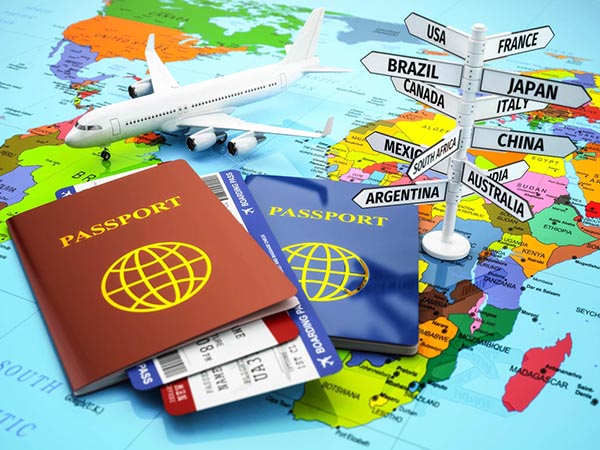
Visa Services
At TATAgency, we recognize the importance of hassle-free...

Birth Services
Our birth services is aimed at providing good, affordable...

Vacation Packages
Escape the ordinary and embark on an extraordinary advent...

Hotel Reservation
Finding the perfect accommodation is essential for a memo...

Flights & Ticketing
Booking flights and securing tickets for your travel adve...
Why choose us
We are best travel agency in the world..
We are a highly trained and experienced team fully committed to your travel needs. Your perfect travel experience from pre-sales to after all services has been rendered by us or our partners and vendors is our success story. Our goal is to bring the best to you at the right time with the best guaranteed price.
Excellent Customer Service
We pride in our excellent customer service. We are conscious & our staff has been trained to deliver the best of services.
Competitive Pricing
One of our strength is in our prices. We have one of the best prices in the industry, yet a better service delivery. Our prices are the best available and this gives us an edge.
High Success Story

Experience & Expertise
Our staff do not only have the experience needed but the expertise as well.
Our Professionalism
We have all the competence needed in-terms of service delivery.
Our Response Time
We have a core competence in our response time. We are always right on time with all the necessary information needed by our clients. We have dedicated channel and response team assigned to each client with an emergency number.
Free Eligibility & Visa Counsel
We offer free eligibility test & counsel on choice of visa, documentations, review of documentation. We advise our clients on what is best and what should be fixed before the application.
Here Are Some Feedback From Clients

My visa processing with them was a seamless process. My review expert was very professional and friendly. Good job guys.
OLA ADEKUNLE
ZENITH BANK
If there will be any reason, I will be using them again is because of their excellent customer service, I almost missed my flight but they assisted me from the moment I arrived at the airport
OLUSHOLA SHOBAYO
TATAgency will forever be my go-to travel agency. Despite my late bookings, they came through and you guys beat my expectations
ODUN OGUNYEMI
Happy client, satisfaction, transit visa, maternity visa, visa on arrival, flight tickets, choose your desired country.
Nostrud aliqua ipsum dolore velit labore nulla fugiat.
A Canada visa is a stamp on your passport which allows yo...
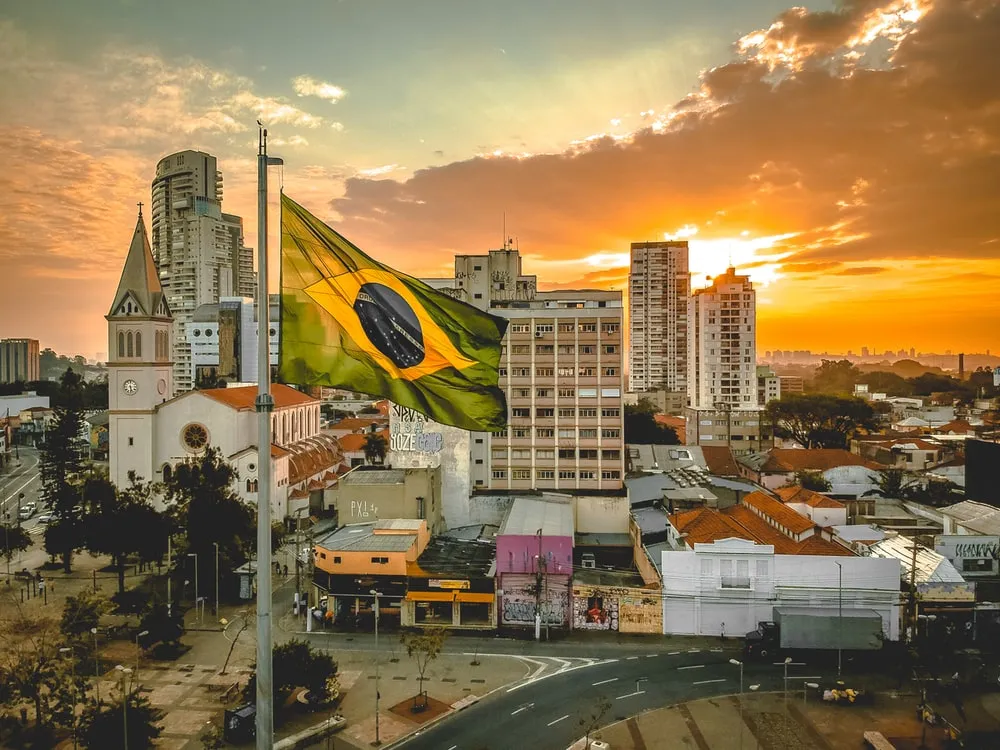
Nigerians with an ordinary passport must first possess a...
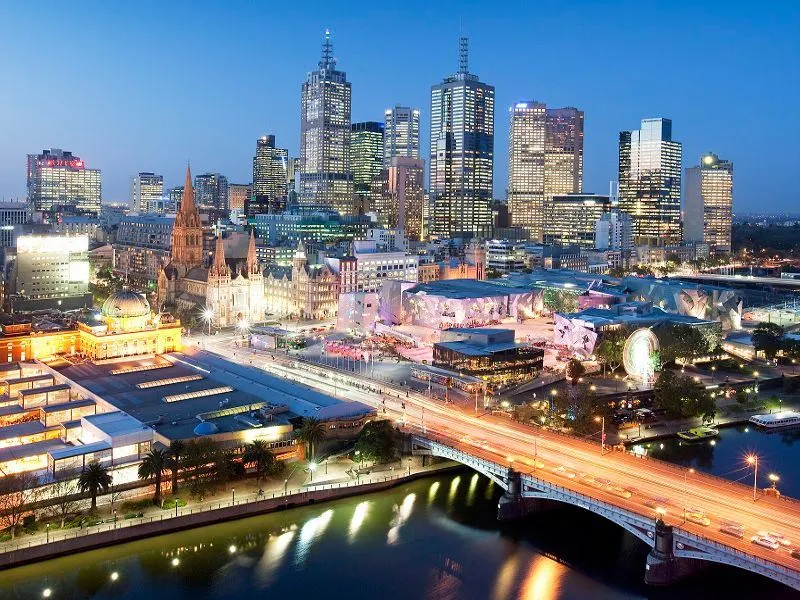
Australia, officially the Commonwealth of Australia, is a...

United States of America
A citizen of a foreign country who seeks to enter the Uni...

United Kingdom
The United Kingdom is located on the continent of Europe,...

United Arab Emirates
Visitors to the United Arab Emirates must obtain a&n...
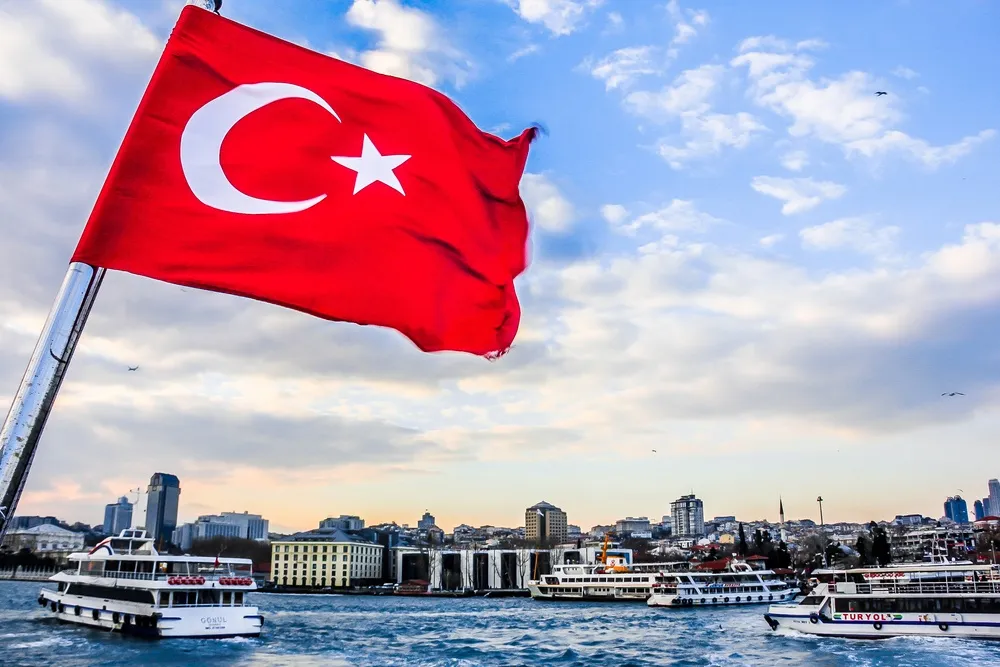
Turkey is a transcontinental country located between Asia...
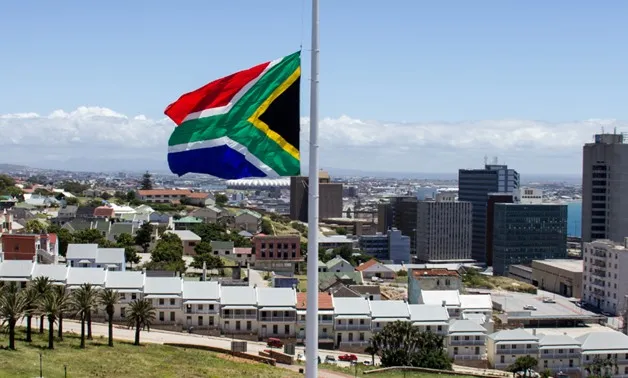
South Africa
South Africa is a country on the southernmost tip of the...
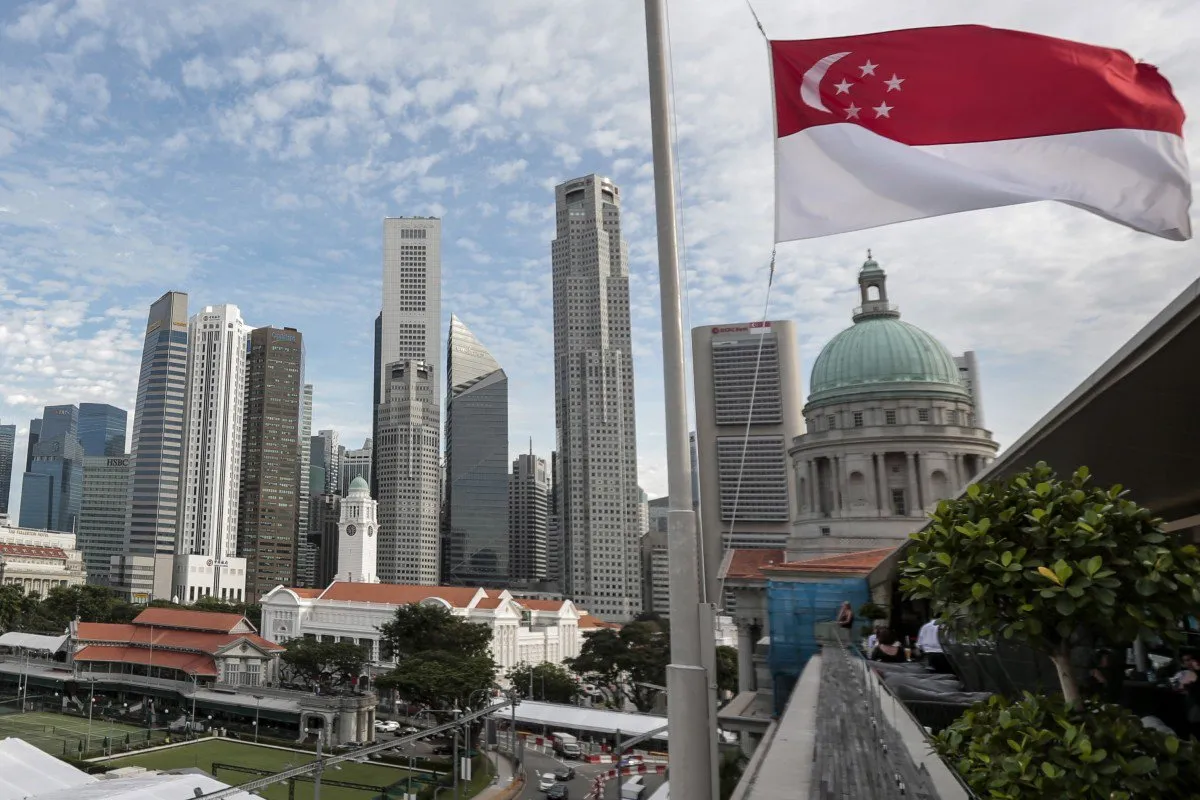
A Singapore visa is not an immigration pass. It is a pre-...

Schengen refers to the European Union passport-free zone...

Qatar is a peninsular Arab country whose terrain comprise...
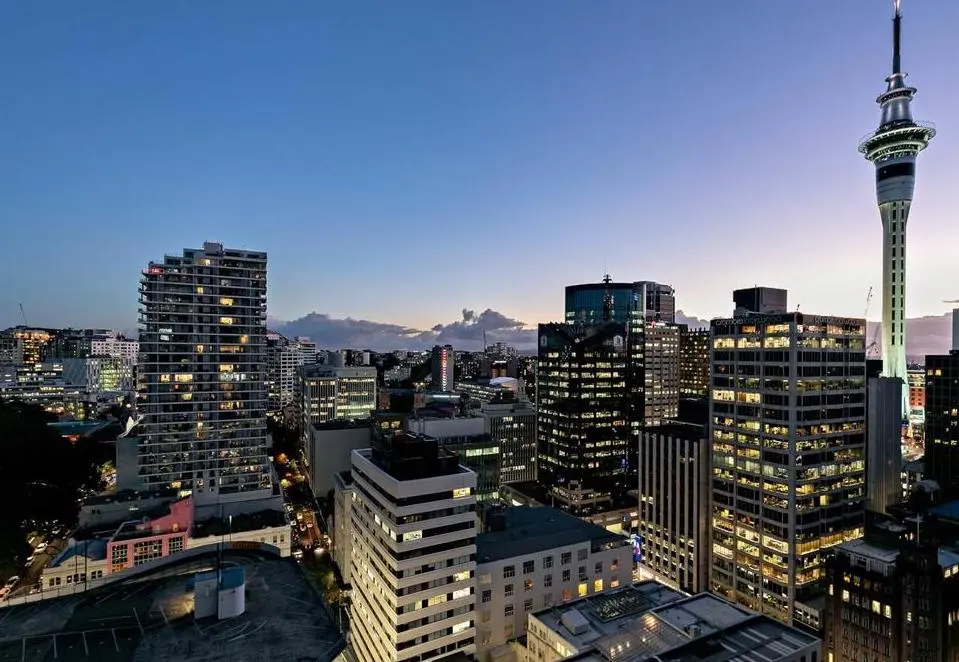
New Zealand
New Zealand is a sovereign island country in the southwes...
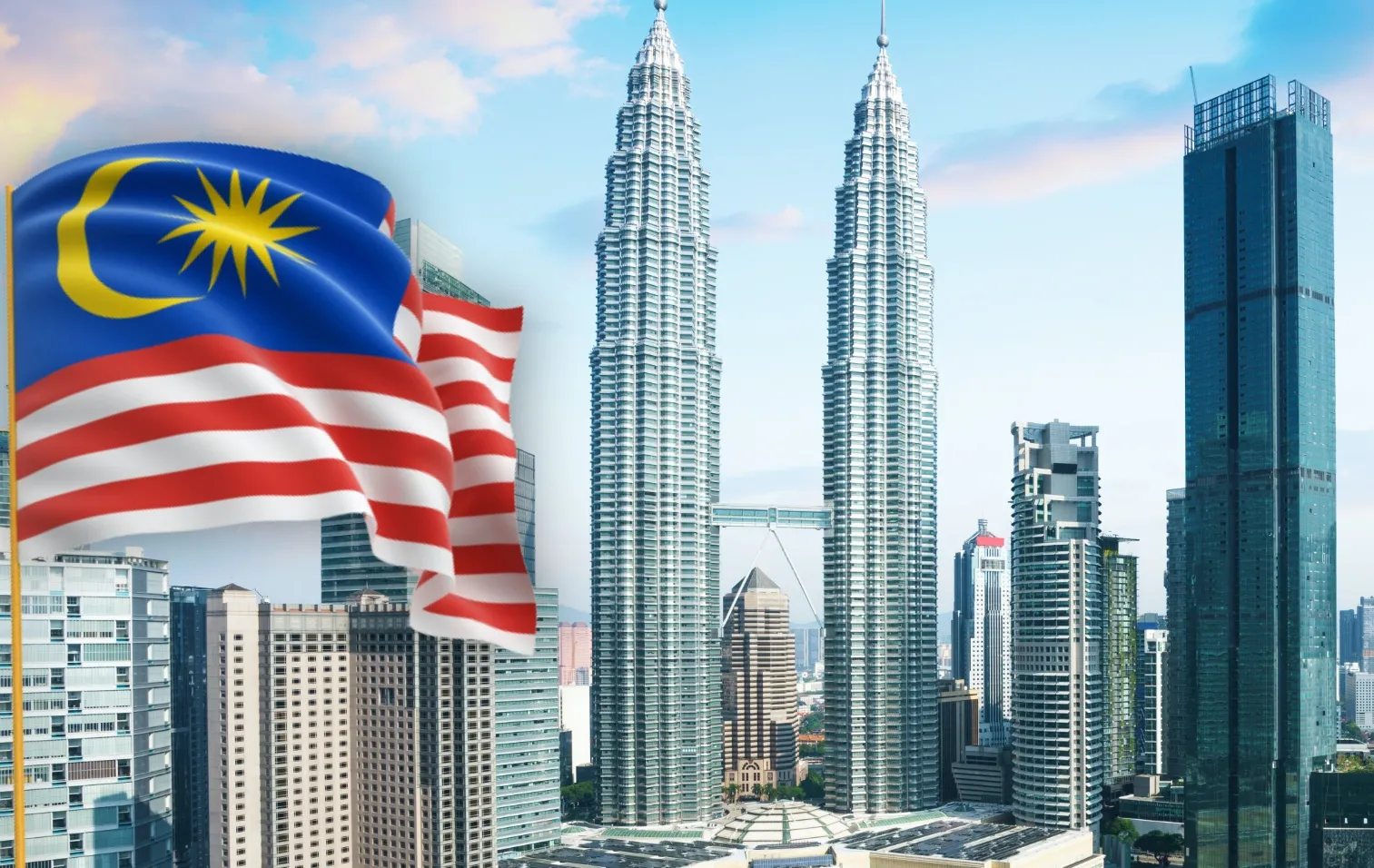
Visitors to Malaysia must obtain a visa from on...

Ireland is not party to the Schengen Agreement, and a Sch...
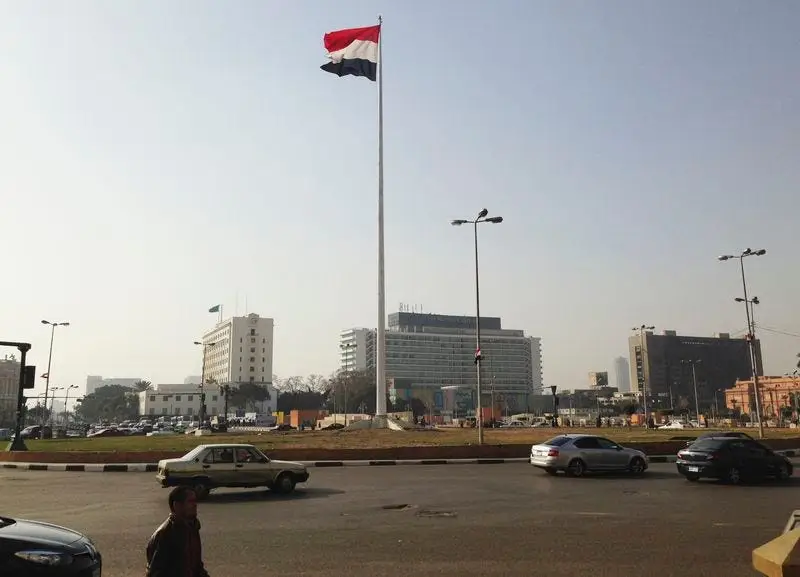
Visit the ancient country of Egypt, a country linking nor...

China, officially the People’s Republic of China, is a co...
Latest Tour Packages
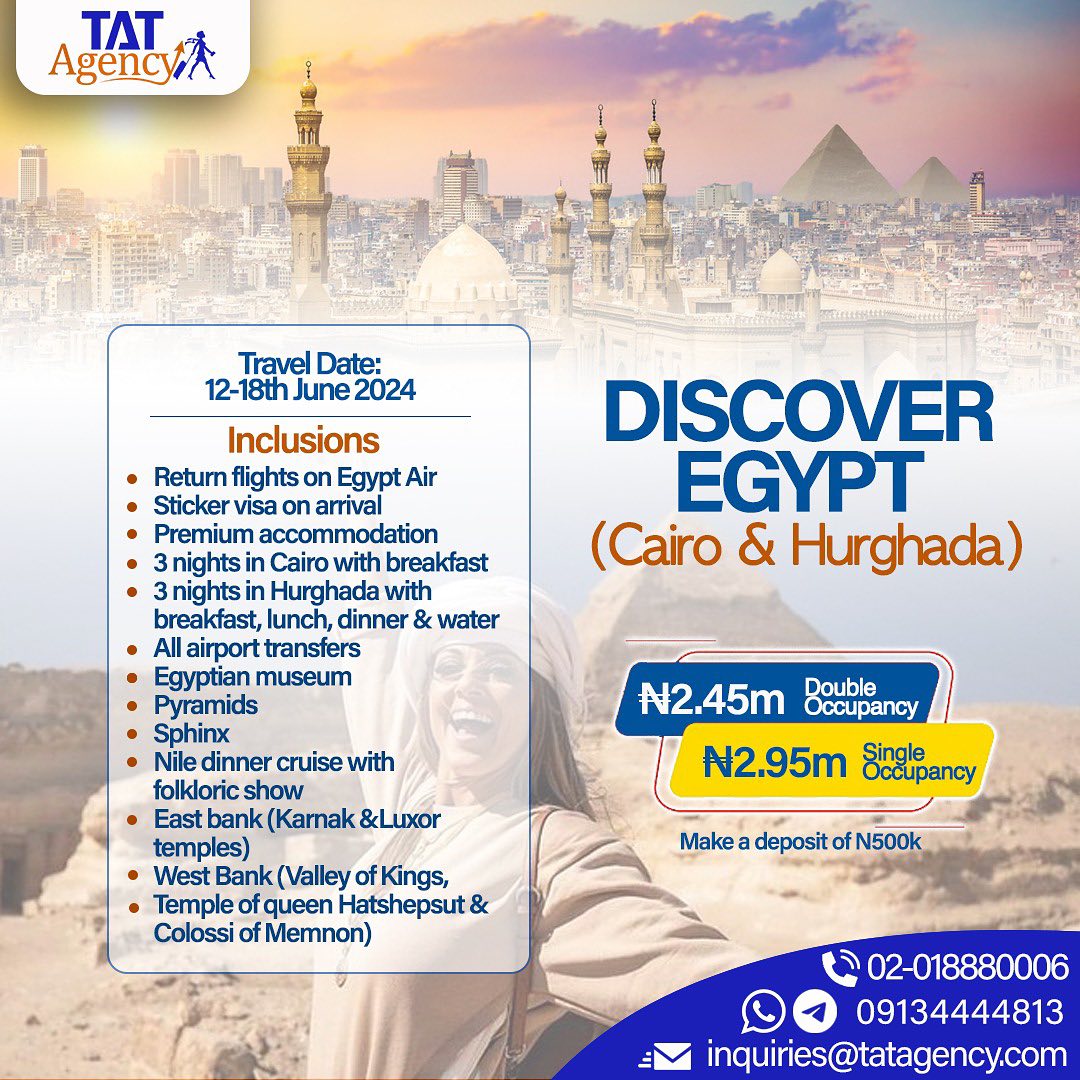
Discover Egypt
7 days 6 nights, discover egypt | 2,450,000.
Visit Cairo & Hurghada to experience the side of Egyp...
Special offers

REFER & EARN
From the comfort of your home and office you can earn more money by referring your friends, family, colleagues..

LOYALTY POINTS
For every product purchased from us, you are awarded an equivalent point which you can use after a while..

Get Informed
Subscribe to get amazing and unbeatable offers and discounts..
Copyright © 2024 TATAgency, All Rights Reserved
- Your Business
- Post a Listing
- Your Listings
- Your Profile
- Your Subscriptions
- Support Local News
- Payment History
Join now, it's FREE!
- Sign up for free Newsletter
- Sign up for Notifications
- Beyond Local
CANADA: New Canadian babies born via birth tourism less than one per cent of all births

- Share by Email
- Share on Facebook
- Share on LinkedIn
- Share via Text Message
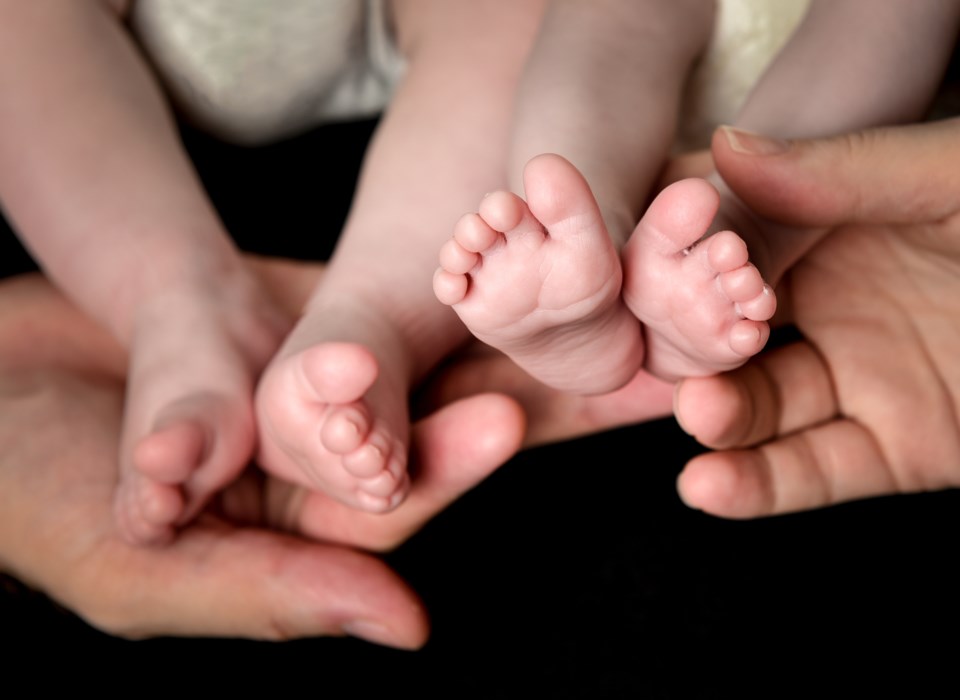
Although birth tourism in Canadian hospitals represents less than one percent of babies born in this country, one Calgary doctor wants to discourage the practice, saying the births are becoming an added weight to an already overwhelmed Canadian healthcare system.
“Birth tourists being specifically people who are coming in specifically to have a birth then go back to their original country,” said Colin Birch, a Calgary obstetrician gynecologist.
They probably come to give birth for the advantage of birthright citizenship for future gains whether it be for themselves or their family, said Birch. “There are still immense advantages of living in a place like Canada,” he said.
“Is it a big problem? Well if you look at the numbers, absolutely not. It’s small.”
“Is it big enough to be a problem? I actually think it is,” he said.
FROM NEW CANADIAN MEDIA'S ARCHIVES: Birth Tourism: Rhetoric Ahead of Evidence
Because Canada is in a healthcare crunch, “every bed is sacred,” said Birch.
As a healthcare system we are suffering from a capacity point of view and the expectation is to do more with less, he said.
“Canada is not really set up, because of its socialized healthcare system, for private-pay patients and the demands that come with private-pay patients,” said Birch.
The expectations from paying patients to patients covered by provincial health care are different.
“Not saying their care is different. Care is care,” he said.
Health care is expensive and when it comes to neonatal care it is astronomical if a baby needs to be in the ICU, he said.
The unpaid bills of the hospitals are massive, he said.
Calgary has taken a different approach to hospital bills associated with birth tourism. Birch confirmed the Calgary system requires a $15,000 deposit.
“It’s a very honest and upfront system,” said Birch. “It doesn’t pay the hospital fees. It’s a deposit which pays basically physician fees.”
From the deposit what doesn’t get spent goes back to the patient, he said.
“We wanted to discourage the practice because it was becoming a bigger burden in Calgary,” said Birch. “The potential problem with that is the patients will then start moving to practitioners who are outside the city limits.”
It isn’t a perfect process but it’s an attempt to implement some sort of order, he said.
Prior to the deposit process, birth tourism had impacts on the capacity of the hospital and ability at times to care for Canadian patients, he said.
Canada and the U.S. are the only countries in the G7 to offer birthright citizenship according to canadianimmigrationexperts.ca.
“What we need to debunk is the idea that all people who are not insured are not necessarily birth tourists,” said Birch.
“There’s a large undocumented population in the country,” he said. They are contributing members of society but are not documented, Birch said.
He wanted to make it clear undocumented folks who are uninsured are not birth tourists.
Birth tourism is not just a medical issue but a social issue that should be addressed, he said.
In the fiscal year 2021-22 Guelph General Hospital had a total of 1,707 deliveries, of which 11 were people from out of country. This breaks down to 0.6 per cent of deliveries where the mother was from out of the country.
Between April 2022 to February 2023 there were 1,543 deliveries and 18 were people from out of country who gave birth at the GGH. This is 1.2 per cent of the deliveries coming from out of country.
At the other end of Canada in Vancouver, much of the same occurred at Richmond Hospital. In 2022, there were 22 non-resident deliveries. This number accounts for 1.5 per cent of the total deliveries at the hospital.
“All maternity patients coming to Richmond get the care they require to deliver their child safely. Care is always triaged according to the safety of the mother and baby – it is never delayed based on residency,” stated in an email from Vancouver Coastal Health (VCH).
VCH also said it does not support marketing of maternity tourism. Births from non residents have not led to disruptions of maternity services, said in the email.
“VCH will never deny urgent and emergent care based on ability to pay or where a patient is from, but we do expect to be compensated as we are accountable to B.C. residents for hospital and health care services. We are committed to collecting compensation from non-residents who use our medical services,” said in the email.
With files from Alec Regino
If you would like to apply to become a verified commenter, please fill out this form .
This has been shared 0 times
About the Author: Santana Bellantoni
- Share full article
For more audio journalism and storytelling, download New York Times Audio , a new iOS app available for news subscribers.

- May 8, 2024 • 28:28 A Plan to Remake the Middle East
- May 7, 2024 • 27:43 How Changing Ocean Temperatures Could Upend Life on Earth
- May 6, 2024 • 29:23 R.F.K. Jr.’s Battle to Get on the Ballot
- May 3, 2024 • 25:33 The Protesters and the President
- May 2, 2024 • 29:13 Biden Loosens Up on Weed
- May 1, 2024 • 35:16 The New Abortion Fight Before the Supreme Court
- April 30, 2024 • 27:40 The Secret Push That Could Ban TikTok
- April 29, 2024 • 47:53 Trump 2.0: What a Second Trump Presidency Would Bring
- April 26, 2024 • 21:50 Harvey Weinstein Conviction Thrown Out
- April 25, 2024 • 40:33 The Crackdown on Student Protesters
- April 24, 2024 • 32:18 Is $60 Billion Enough to Save Ukraine?
- April 23, 2024 • 30:30 A Salacious Conspiracy or Just 34 Pieces of Paper?
A Plan to Remake the Middle East
While talks for a cease-fire between israel and hamas continue, another set of negotiations is happening behind the scenes..
Hosted by Michael Barbaro
Featuring Michael Crowley
Produced by Nina Feldman , Clare Toeniskoetter and Rikki Novetsky
Edited by Liz O. Baylen
Original music by Marion Lozano , Elisheba Ittoop and Dan Powell
Engineered by Alyssa Moxley
Listen and follow The Daily Apple Podcasts | Spotify | Amazon Music | YouTube
If and when Israel and Hamas reach a deal for a cease-fire, the United States will immediately turn to a different set of negotiations over a grand diplomatic bargain that it believes could rebuild Gaza and remake the Middle East.
Michael Crowley, who covers the State Department and U.S. foreign policy for The Times, explains why those involved in this plan believe they have so little time left to get it done.
On today’s episode

Michael Crowley , a reporter covering the State Department and U.S. foreign policy for The New York Times.

Background reading :
Talks on a cease-fire in the Gaza war are once again at an uncertain stage .
Here’s how the push for a deal between Israel and Saudi Arabia looked before Oct. 7 .
From early in the war, President Biden has said that a lasting resolution requires a “real” Palestinian state .
Here’s what Israeli officials are discussing about postwar Gaza.
There are a lot of ways to listen to The Daily. Here’s how.
We aim to make transcripts available the next workday after an episode’s publication. You can find them at the top of the page.
The Daily is made by Rachel Quester, Lynsea Garrison, Clare Toeniskoetter, Paige Cowett, Michael Simon Johnson, Brad Fisher, Chris Wood, Jessica Cheung, Stella Tan, Alexandra Leigh Young, Lisa Chow, Eric Krupke, Marc Georges, Luke Vander Ploeg, M.J. Davis Lin, Dan Powell, Sydney Harper, Mike Benoist, Liz O. Baylen, Asthaa Chaturvedi, Rachelle Bonja, Diana Nguyen, Marion Lozano, Corey Schreppel, Rob Szypko, Elisheba Ittoop, Mooj Zadie, Patricia Willens, Rowan Niemisto, Jody Becker, Rikki Novetsky, John Ketchum, Nina Feldman, Will Reid, Carlos Prieto, Ben Calhoun, Susan Lee, Lexie Diao, Mary Wilson, Alex Stern, Dan Farrell, Sophia Lanman, Shannon Lin, Diane Wong, Devon Taylor, Alyssa Moxley, Summer Thomad, Olivia Natt, Daniel Ramirez and Brendan Klinkenberg.
Our theme music is by Jim Brunberg and Ben Landsverk of Wonderly. Special thanks to Sam Dolnick, Paula Szuchman, Lisa Tobin, Larissa Anderson, Julia Simon, Sofia Milan, Mahima Chablani, Elizabeth Davis-Moorer, Jeffrey Miranda, Renan Borelli, Maddy Masiello, Isabella Anderson and Nina Lassam.
Michael Crowley covers the State Department and U.S. foreign policy for The Times. He has reported from nearly three dozen countries and often travels with the secretary of state. More about Michael Crowley
Advertisement

IMAGES
VIDEO
COMMENTS
Both appear on multiple websites of companies advertising services such as assistance with immigration, travel and housing to women looking to come to Canada to give birth. Wang said the companies ...
Our package covers all medical and birth-related matters. It includes doctors appointments, check-ups and follow-ups, labor and delivery, birth certification, passport issuance, and more. Starting at CAD 12.9K. Canada is one of the few high-income countries that offers citizenship automatically to those born in the country.
The countries that allow birth tourism are Canada and the United States. Furthermore, Chile, Brazil, and Mexico do not only allow birthright citizenship, they subsequently expedite permanent residency and time to naturalize as citizens for the parents of the child. ... Is there any immigration childbirth packages that you can offer? Thank you ...
Contact Us. +1 289 828 6988. [email protected]. Welada offers three different packages for giving birth in Canada. As the leading facilitator of child birth in Canada, we make this process accessible to everyone by offering packages at three different pricepoints. Learn more!
The COVID-19 pandemic provides a perfect natural experiment to assess the extent of birth tourism in Canada now that we have 2020-21 hospital delivery data from the Canadian Institute of Health Information (CIHI).. The latest data respond to questions regarding the accuracy of CIHI data in assessing the extent of birth tourism following my initial analysis in 2018 in Policy Options, given the ...
Listen to this article. 00:01:42. So-called "birth tourism" is when pregnant, non-Canadian women fly into Canada in order to give birth and secure citizenship for their babies. In addition to receiving benefits, like healthcare and education, when the children become adults, they can also sponsor their parents to immigrate to Canada.
The COVID-19 pandemic provided the perfect natural experiment to assess the extent of birth tourism in Canada. Dramatic declines of 50 per cent compared with the pre-pandemic 2016-20 average occurred in 2020 and 2021 in the number of "non-resident, self-pay" births. That was followed by an overall increase of 53 per cent in 2022 compared ...
The visa for women to give birth in Canada is a simple Temporary Resident Visa. There are no differences in the procedures or what is allowed, except for the fact that the woman might or will be giving birth in Canada. This visa is temporary, usually valid for 6 months of less. It allows women to go to Canada to visit family, friends, or travel ...
Birth tourism is the practice of traveling to another country or city for the purpose of giving birth in that country. The main reason for birth tourism is to obtain citizenship for the child in a country with birthright citizenship ().Such a child is sometimes called an "anchor baby" if their citizenship is intended to help their parents obtain permanent residency in the country.
Growing Birth Tourism in Canada: Birth tourism is on the rise in Canada, where individuals travel to give birth and secure citizenship for their child.; Immigration Firms Facilitating Birth Tourism: Immigration firms offer packages to streamline the process, providing assistance with travel, accommodation, and legal paperwork.; Legal and Social Concerns: Birth tourism raises legal, social, and ...
These packages often include assistance with travel arrangements, accommodation at "birth hotels", and legal paperwork. ... Engaging in birth tourism in Canada can potentially lead to ...
This provides a very good indication of the extent of birth tourism in Canada. Now that the restrictions are loosening and travel is once again opening up, it's time for the federal government to revisit its policy on non-resident births and Canadian citizenship. The decline to 2,245 in 2021 from 2,433 in 2020 occurred in all provinces save ...
Birth Tourism: the practice of non-residents of a country traveling to a new country with the intention to give birth in the new country. Birth Tourist: an Uninsured Prenatal Patient who is a non-resident who travels to a new country with the intention of giving birth there.In Canada, Birth Tourists do not qualify for publicly funded health care coverage, even if they are Canadian citizens ...
Under paragraph 3 (1) (a) of the Citizenship Act, persons born in Canada are Canadian citizens. This right applies to all persons born in Canada, irrespective of the status in Canada of their parents, other than persons born to accredited diplomats. There are no elements of the Immigration and Refugee Protection Act (IRPA) that refer to this right.
Engaging in birth tourism can potentially lead to violations of immigration laws, particularly if individuals exceed their authorized period of stay in Canada. Although birth tourists usually enter Canada with valid visitor visas, unforeseen pregnancy complications may arise during their stay, necessitating medical treatment or an extended ...
What to Know About "Birth Tourism" in 2024. Over the years, many foreign nationals were born at Richmond Hospital in Canada to non-Canadian citizens or permanent residents. This is part of an industry known as "birth tourism", in which a pregnant woman enters Canada to give birth to a child who will then automatically be given citizenship.
Birth tourism is on the rise in Canada, with new data suggesting that 1.4 per cent of all births in the country involve non-resident mothers.
Vancouver, BC [November 4, 2022] - Canadians are currently not paying as much attention to the issue of "birth tourism" as they did in 2020, but a sizeable majority believe the practice should still be scrutinized, a new Research Co. poll has found. In the online survey of a representative national sample, 28% of Canadians say they have ...
What he found was that the level of birth tourism nationally in Canada is at least five times greater than the 313 births recorded by Statistics Canada in 2016, sitting at 3,223.
Birth tourism is also not illegal in Canada — but there is a caveat. A Canada Border Services Agency (CBSA) spokesperson told the Vancouver Sun that pregnancy is "not a reason in itself to not ...
CANADA BIRTH SERVICES. Our birth services is aimed at providing good, affordable & hitch free pre & post child delivery services abroad that enables expectant mother to have access to: Better medical services before and during child birth. Post child birth assistance like baby documentation, declaration of birth, nanny services and more.
Prior to the deposit process, birth tourism had impacts on the capacity of the hospital and ability at times to care for Canadian patients, he said. Canada and the U.S. are the only countries in the G7 to offer birthright citizenship according to canadianimmigrationexperts.ca.
Important Event Info: In the best interest of fans and staff, the Event Organizer will continue to monitor local COVID-19 trends and meet or exceed protocols mandated by local governments. Fans attending the event agree to abide by the health and safety measures in effect at the time of the event, which may include, but not be limited to, wearing masks, providing proof of vaccination status ...
The Daily is made by Rachel Quester, Lynsea Garrison, Clare Toeniskoetter, Paige Cowett, Michael Simon Johnson, Brad Fisher, Chris Wood, Jessica Cheung, Stella Tan ...
Snoop Dogg - Cali To Canada Tour More Info. Wed • Jun 12 • 7:00 PM Scotiabank Arena, Toronto, ON. Important Event Info: Fans in attendance agree to abide by the health and safety measures in effect at... more. Important Event Info: Fans in attendance agree to abide by the health and safety measures in effect at the time of the event. Prior ...
Ticketmaster Canada
Buy Snoop Dogg - Cali To Canada Tour tickets at the Canadian Tire Centre in Ottawa, ON for Jun 11, 2024 at Ticketmaster. Snoop Dogg - Cali To Canada Tour More Info. Tue • Jun 11 • 7:00 PM Canadian Tire Centre, Ottawa, ON. Important Event Info: Canadian Tire Centre is now a cashless environment.